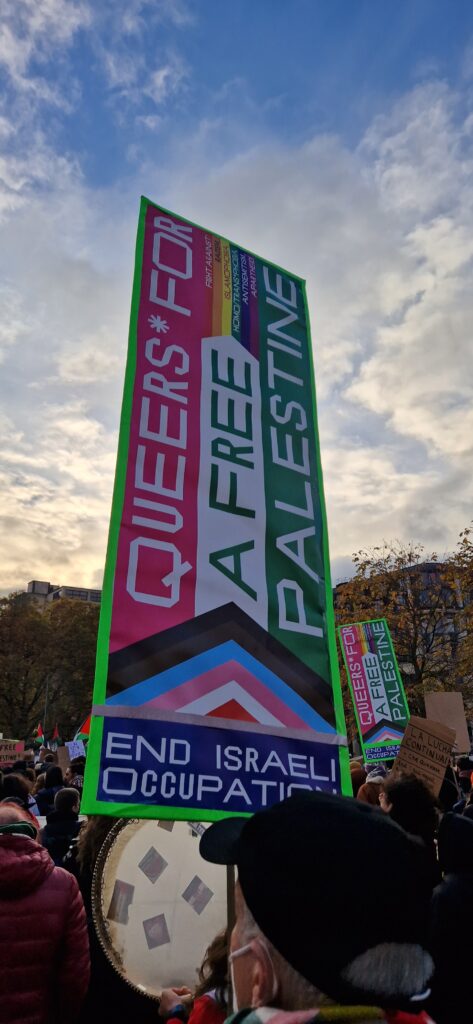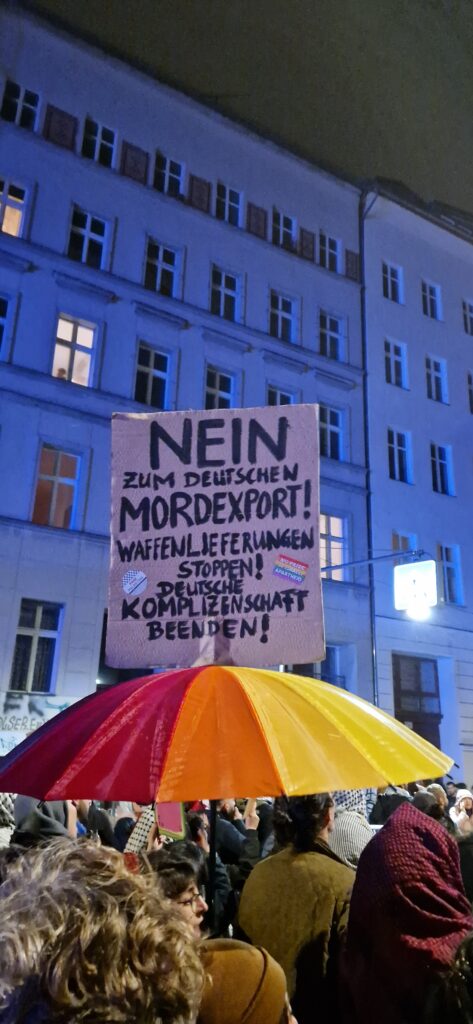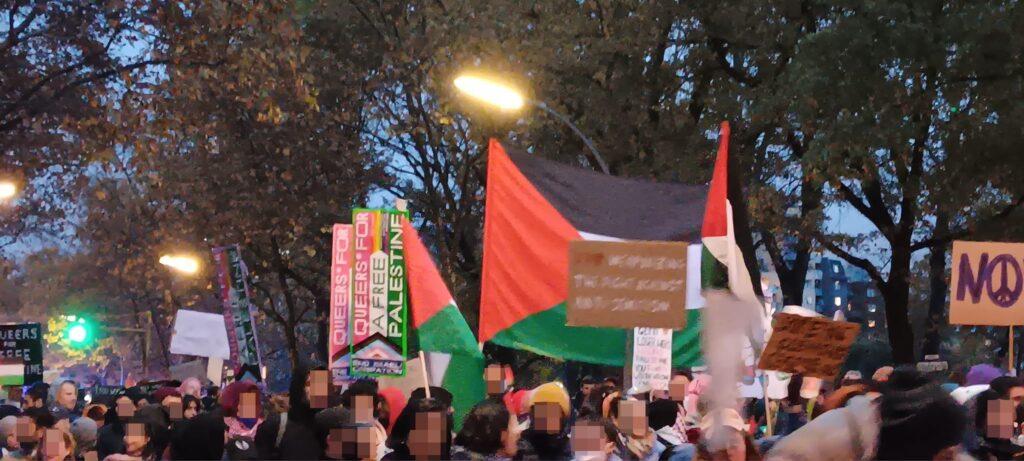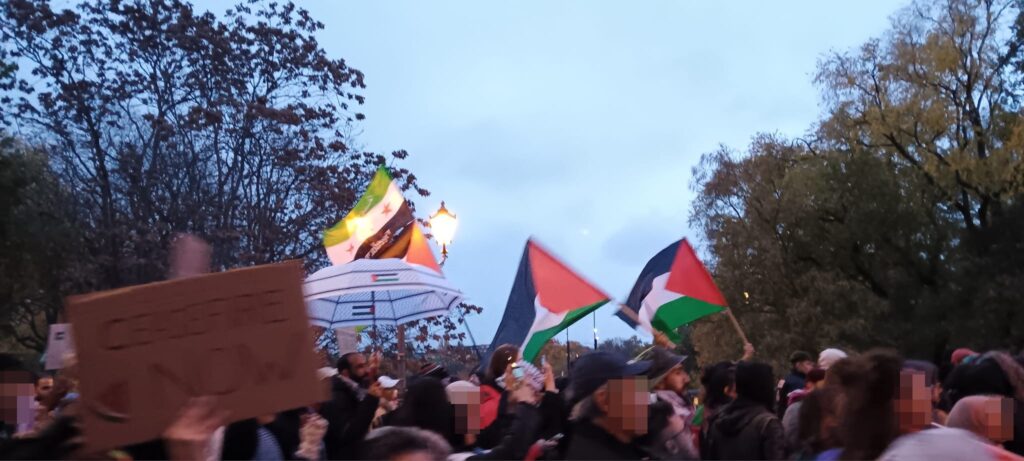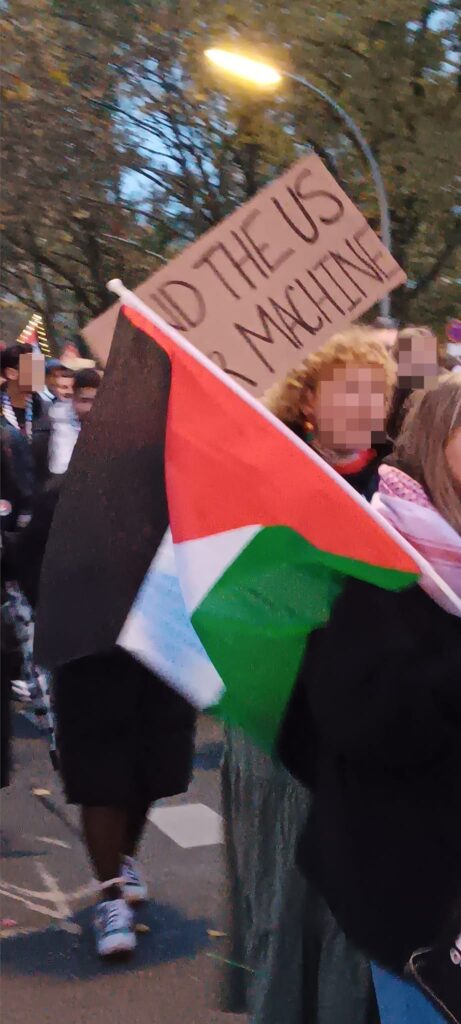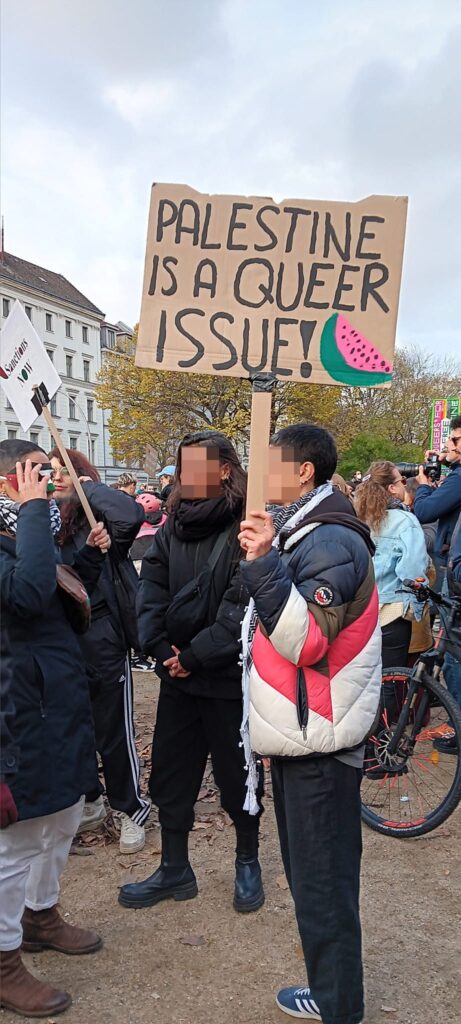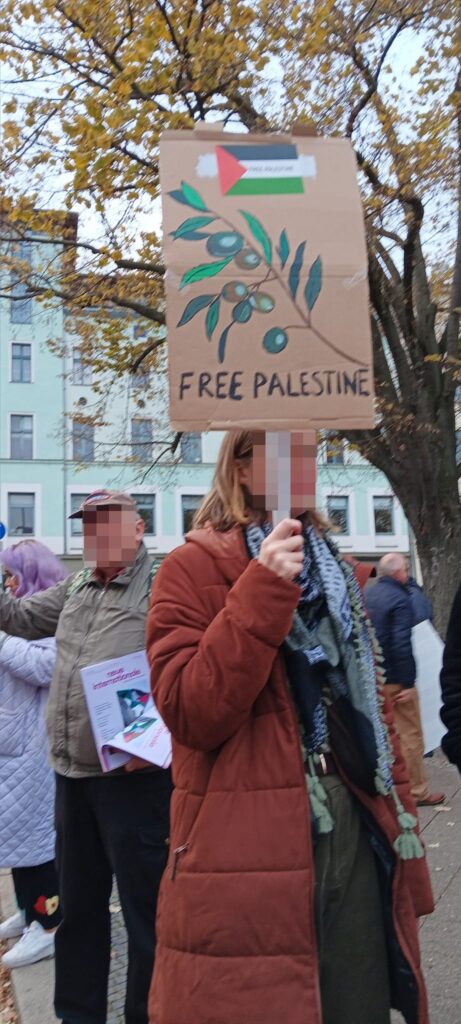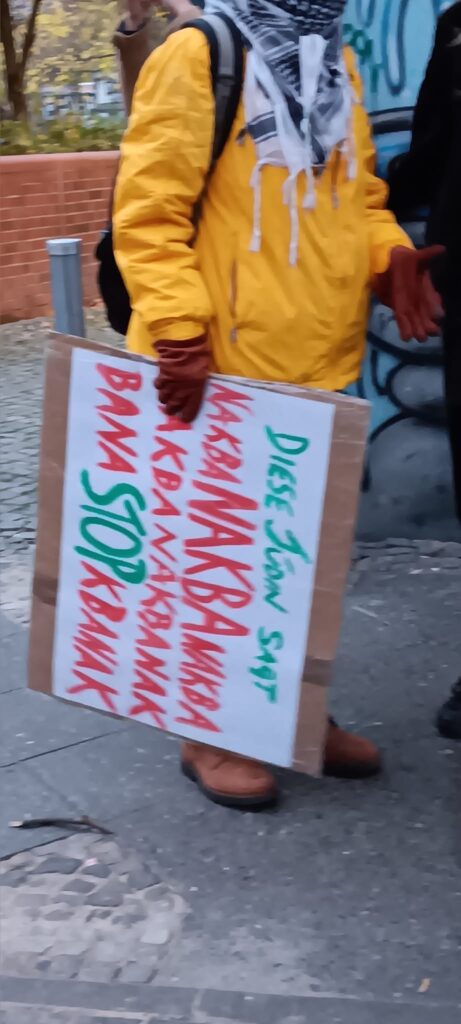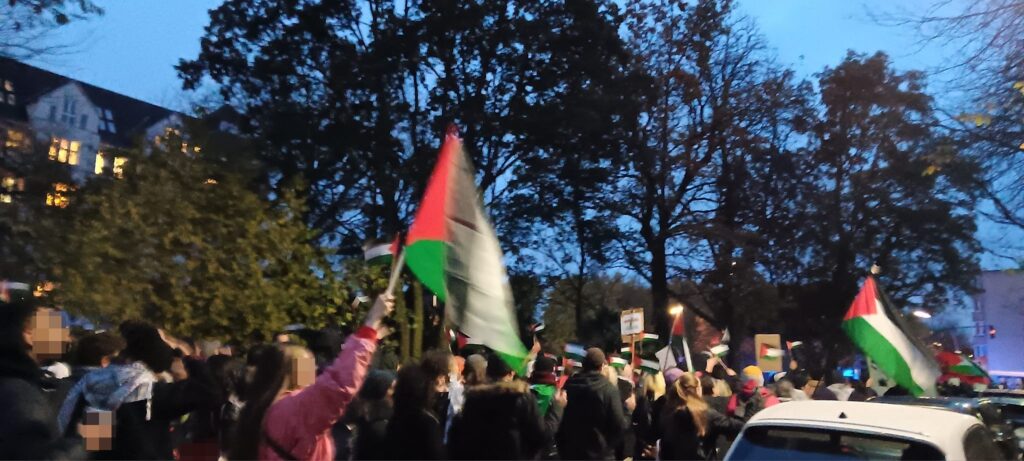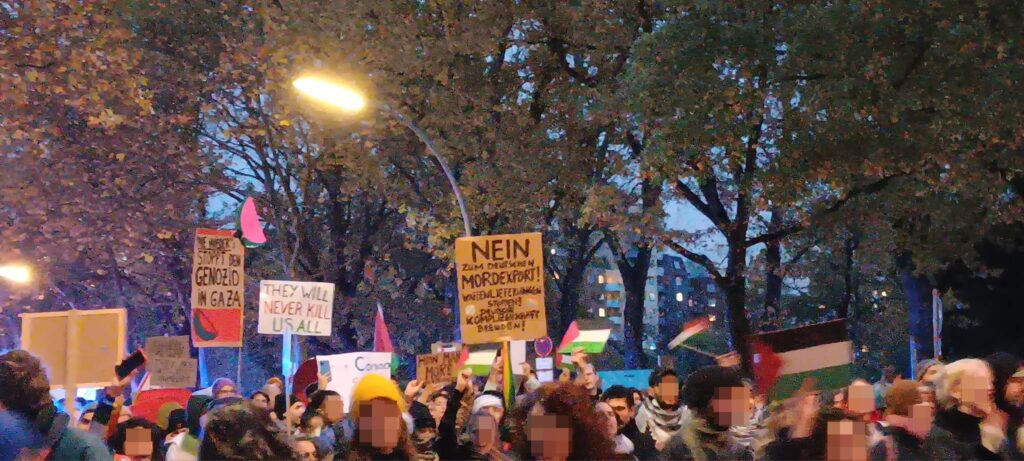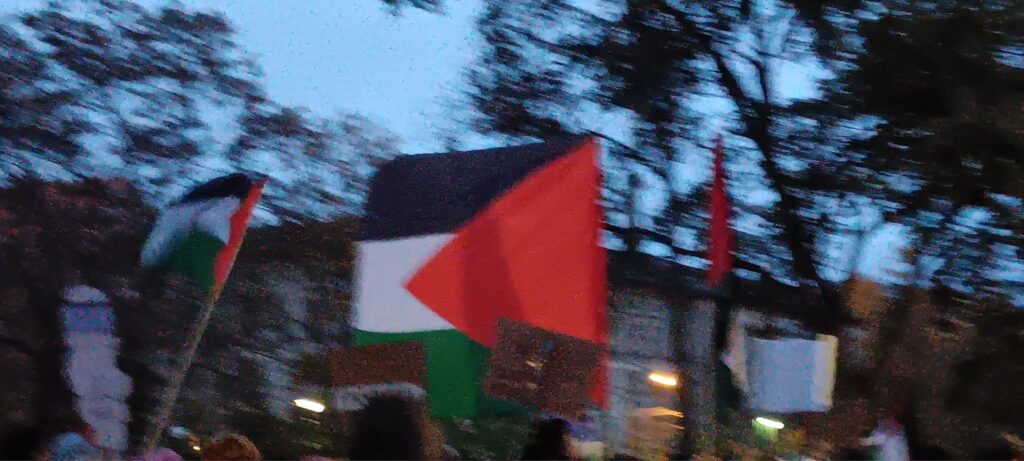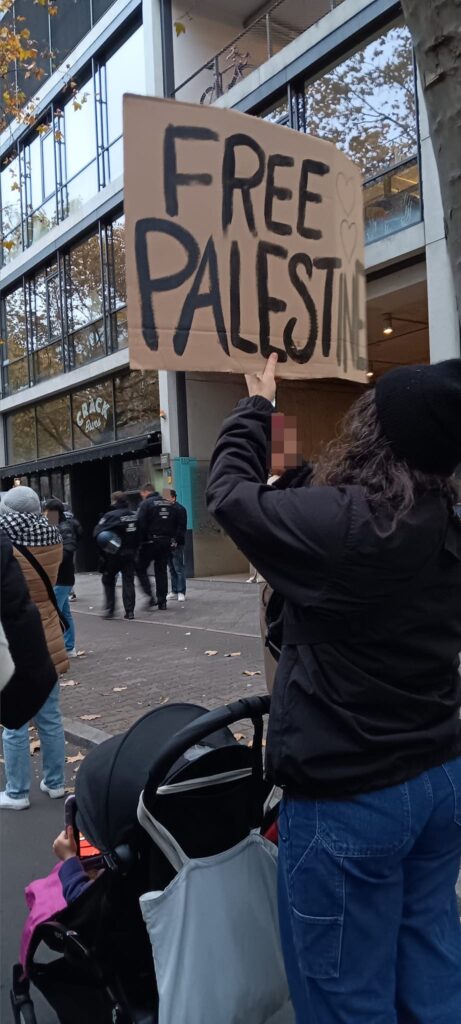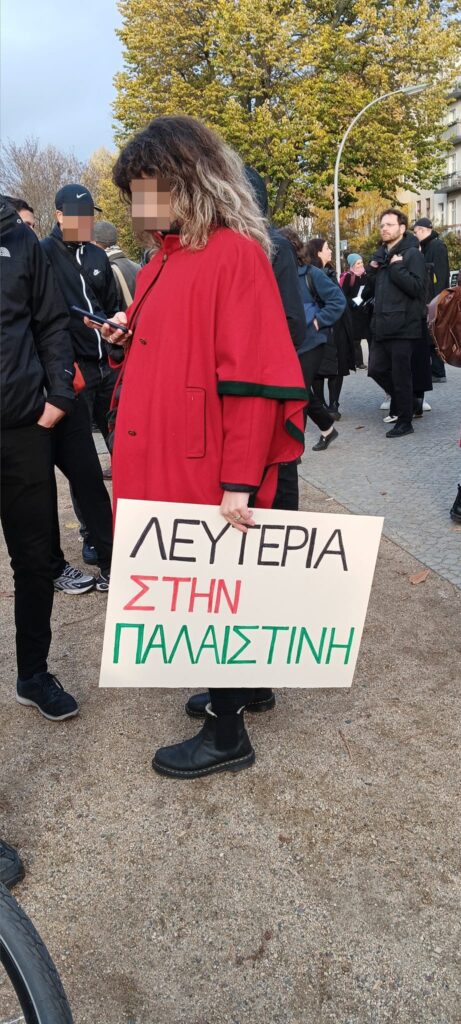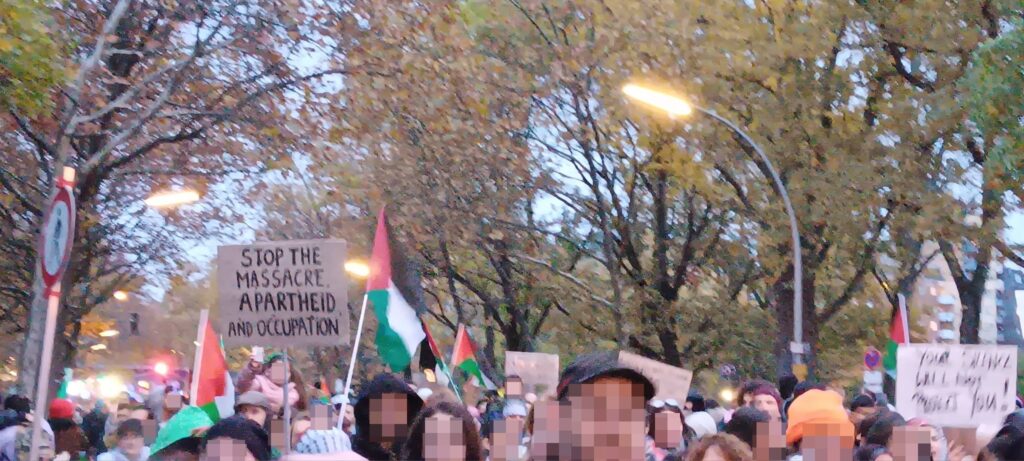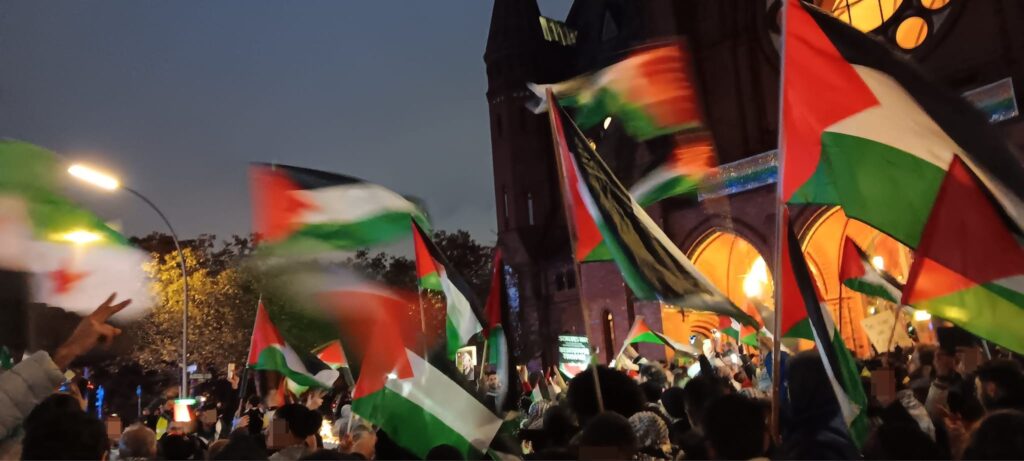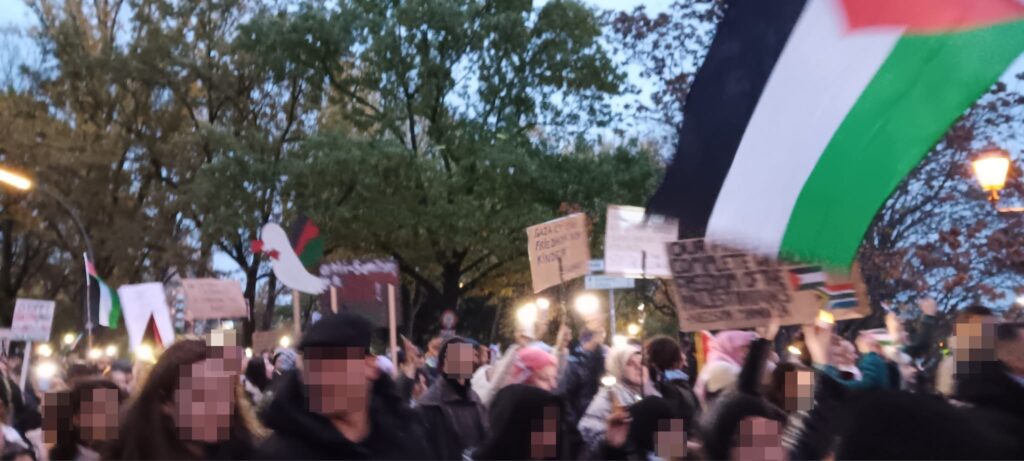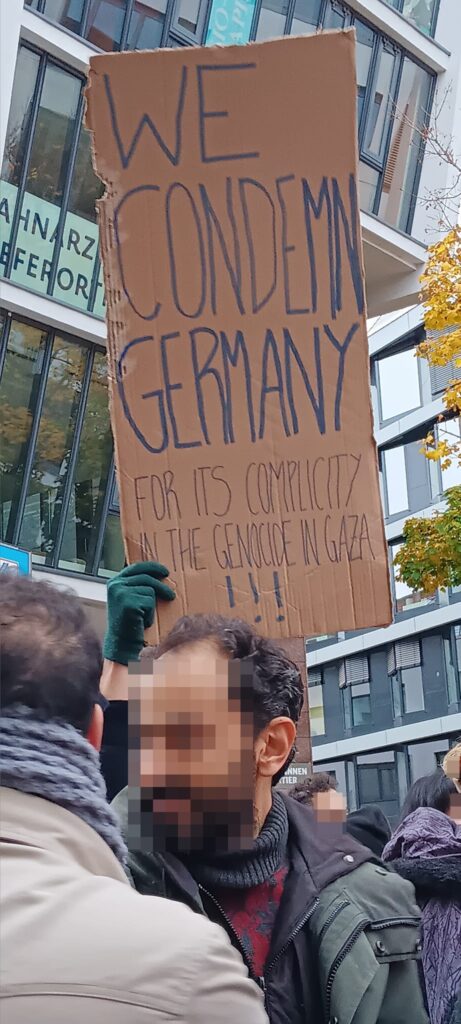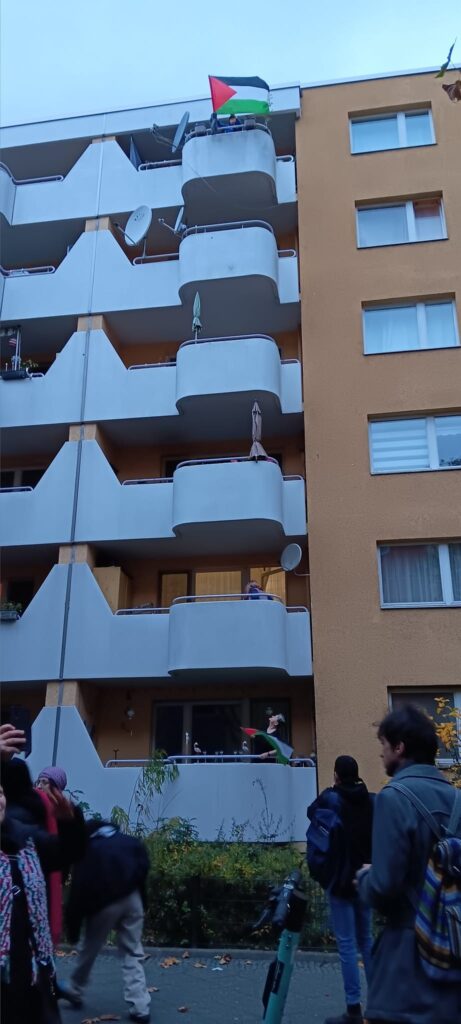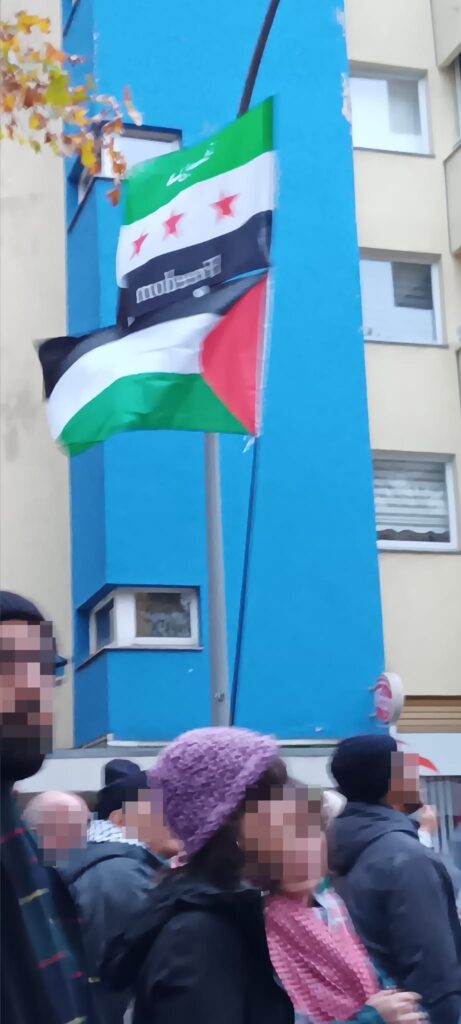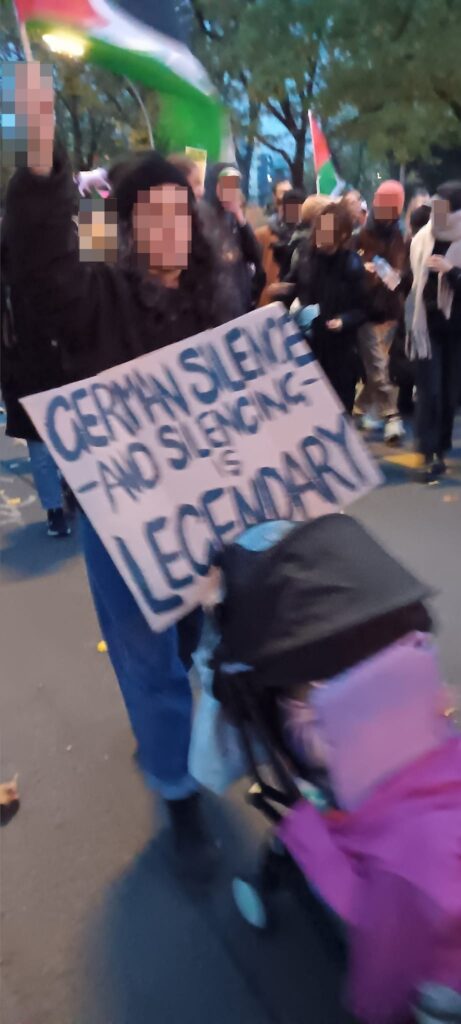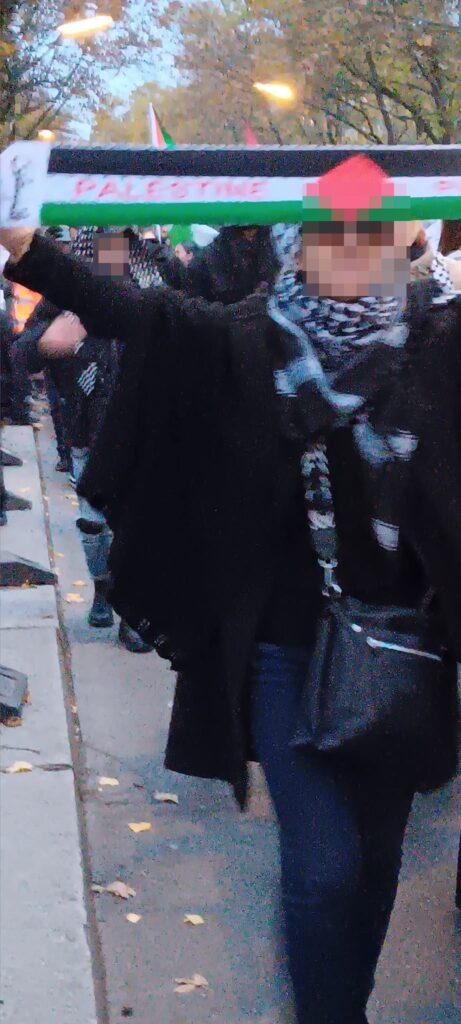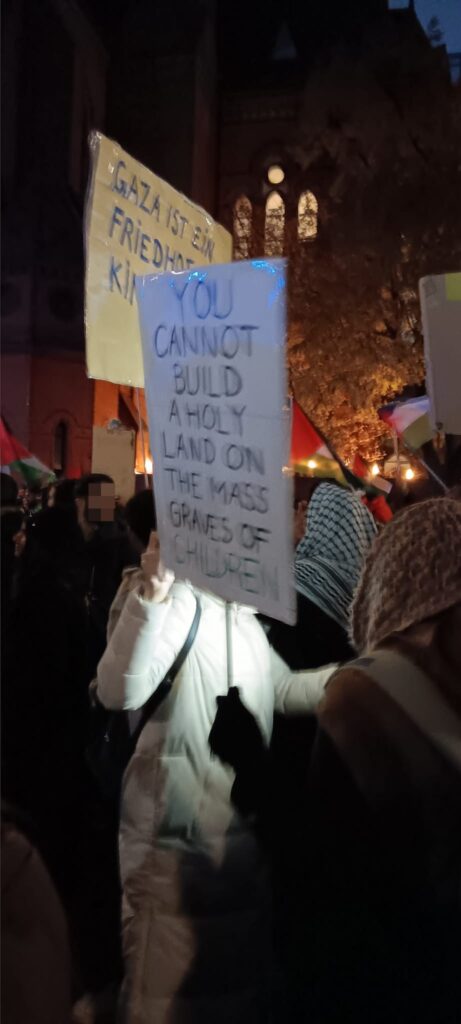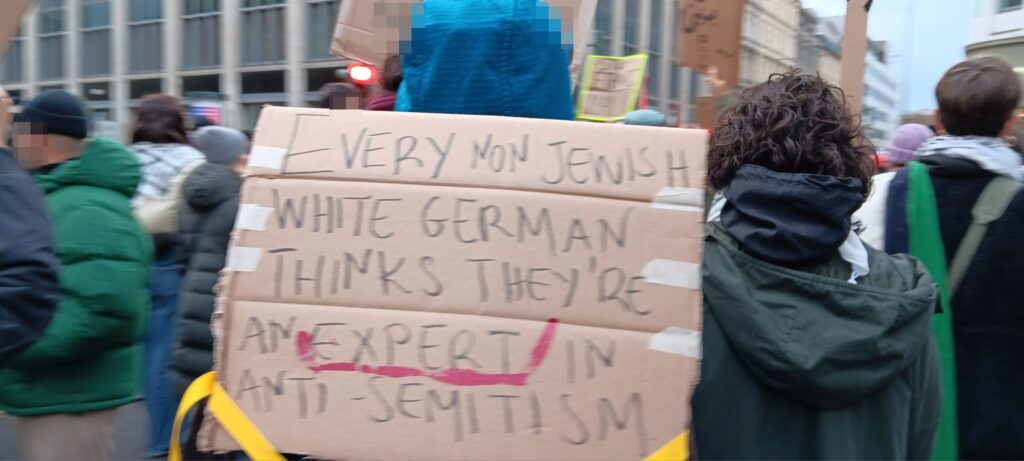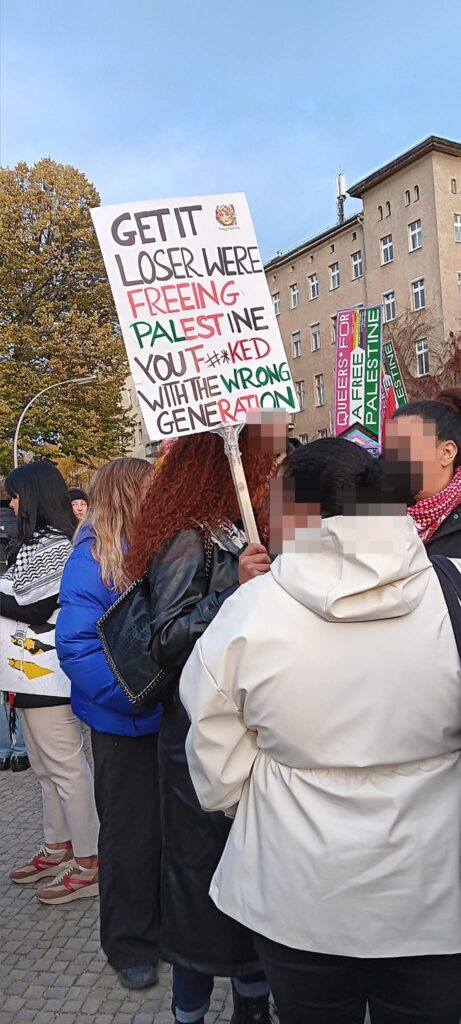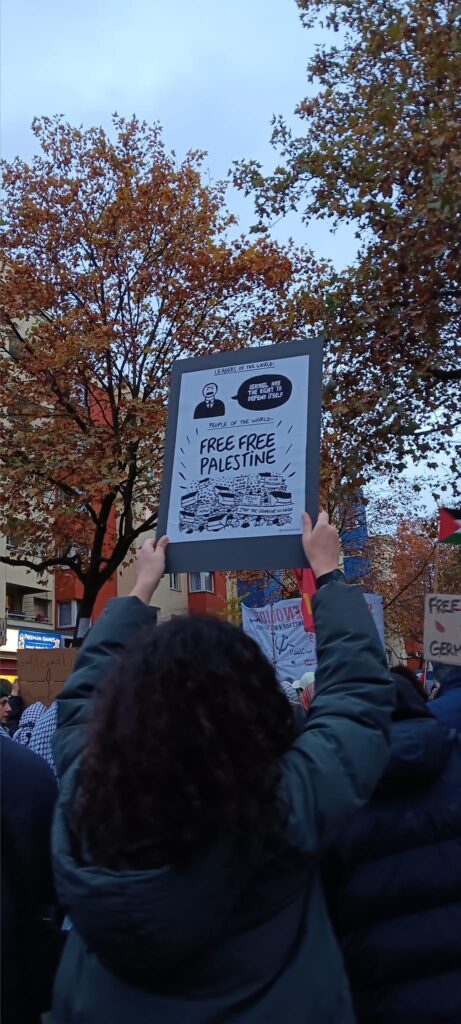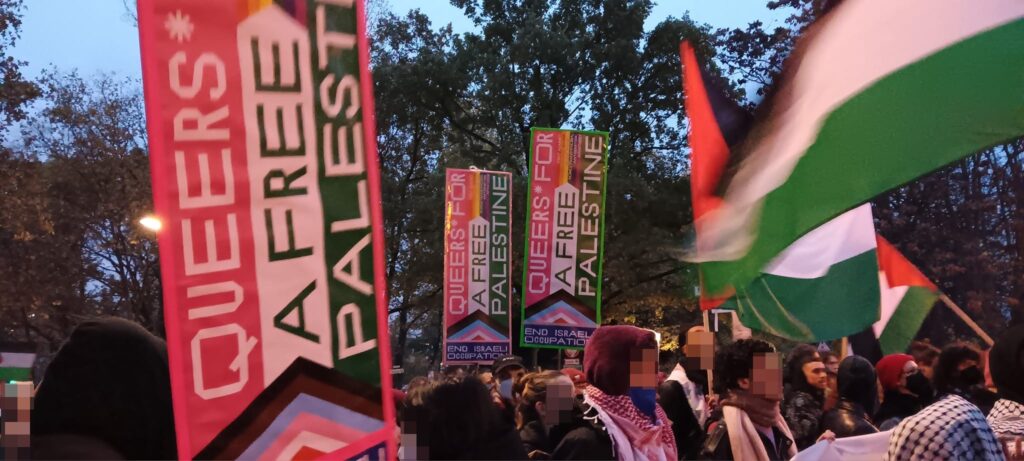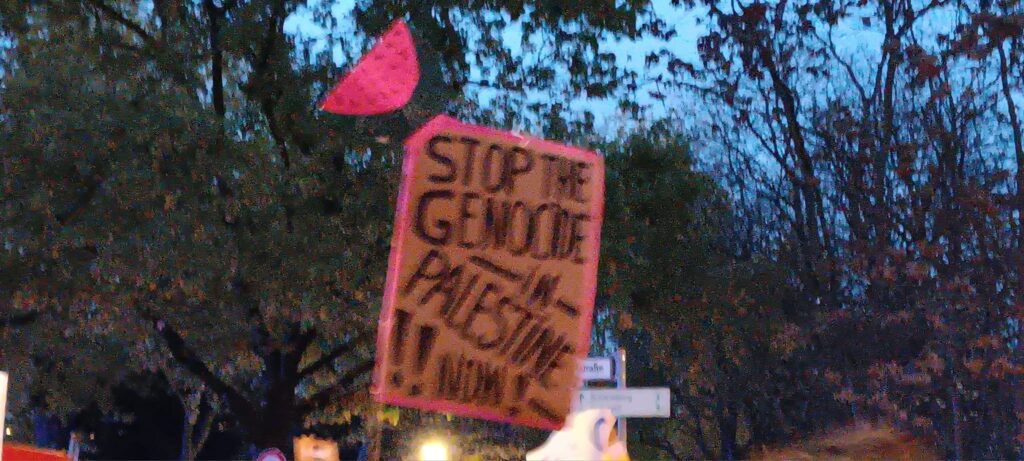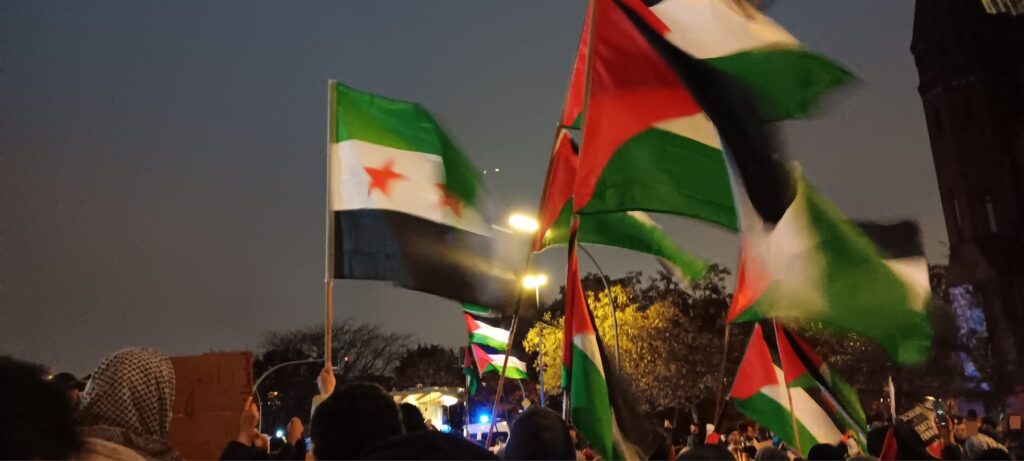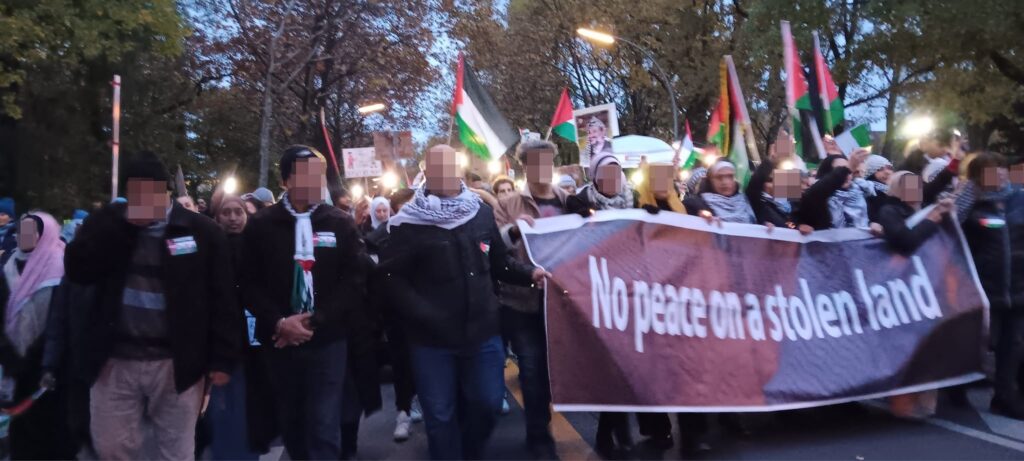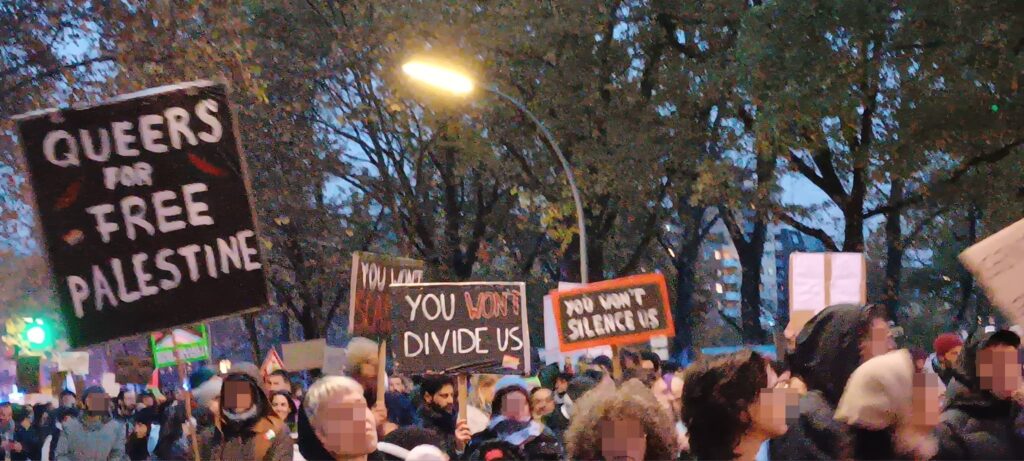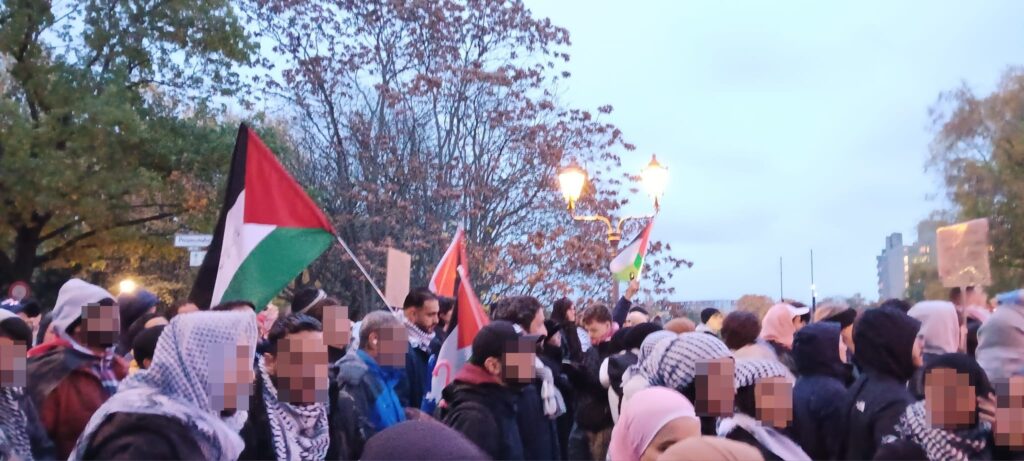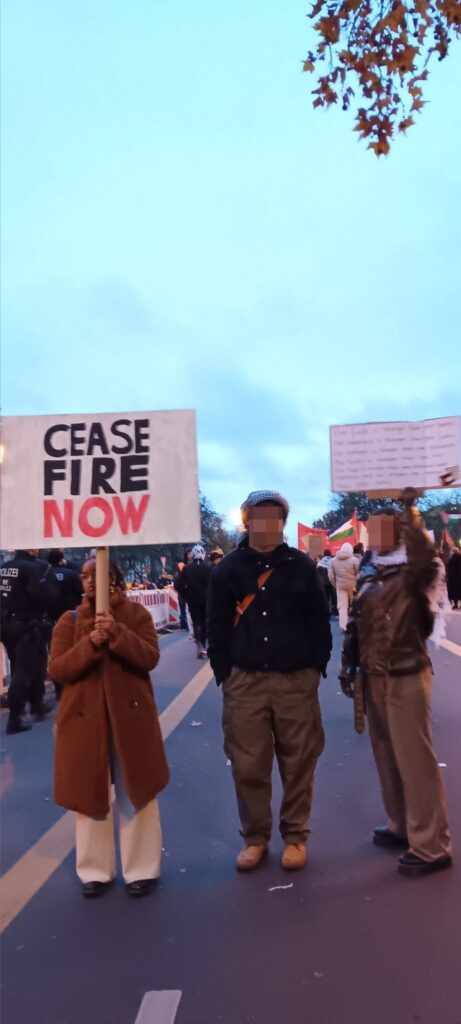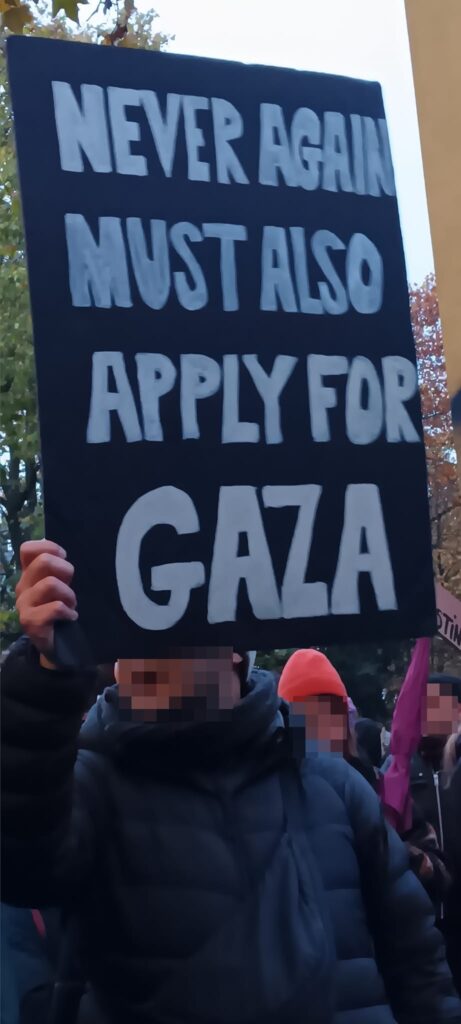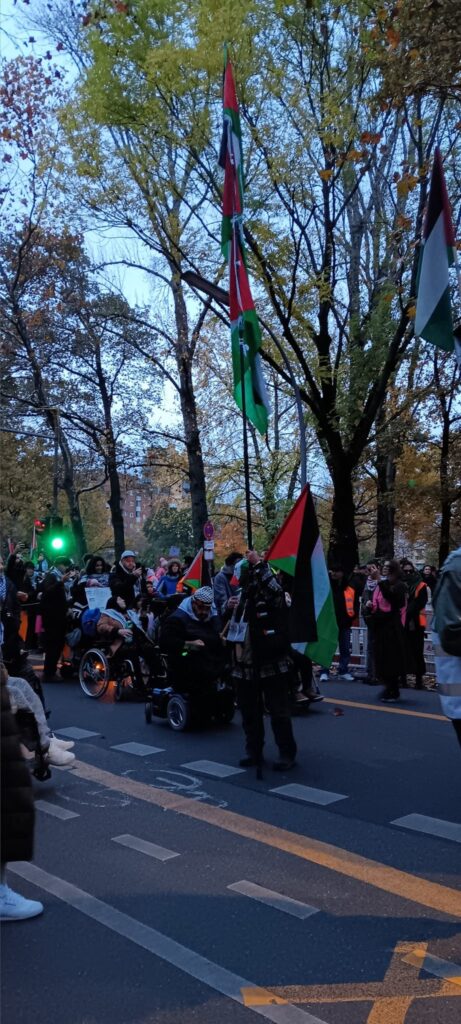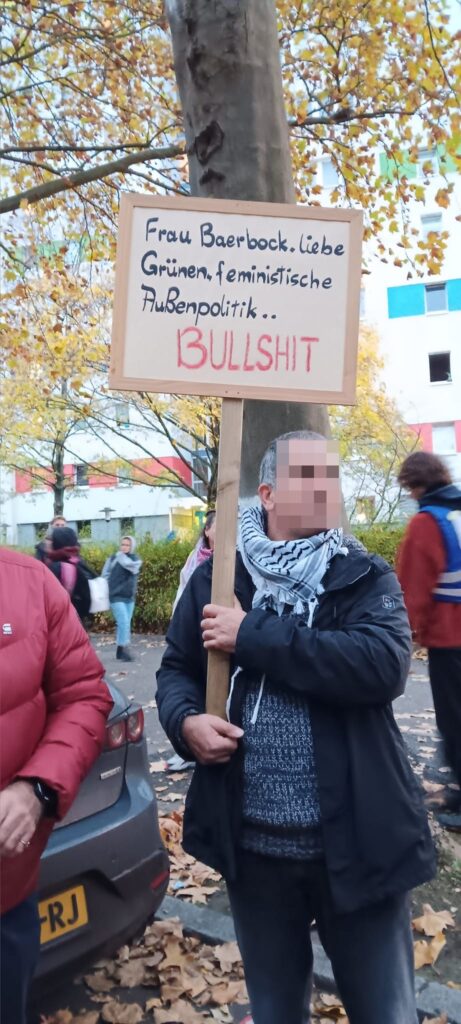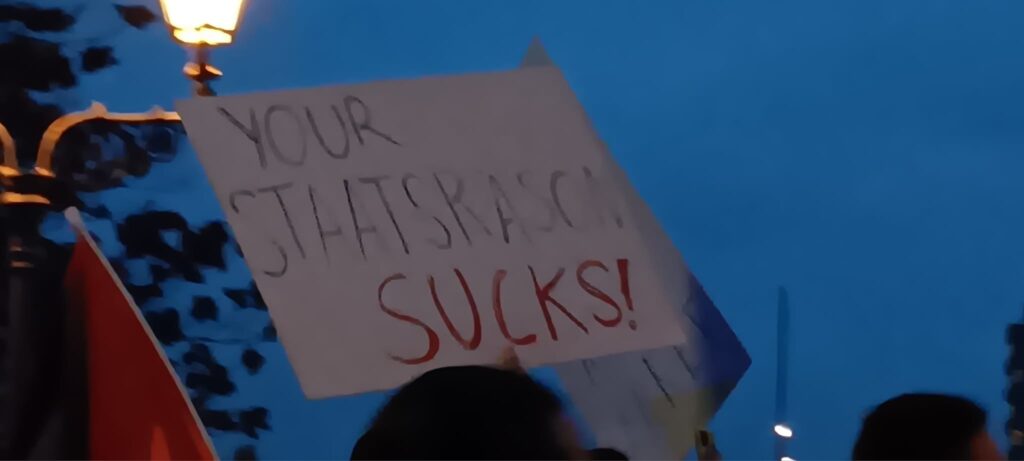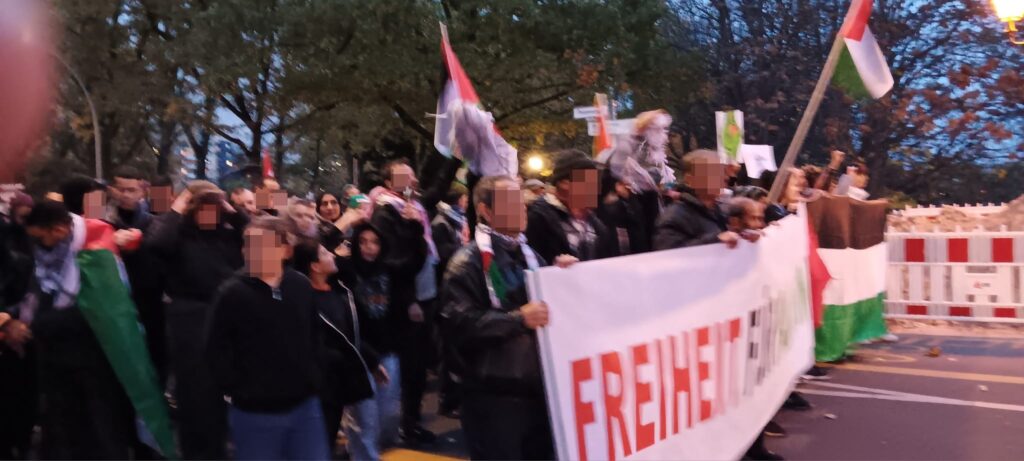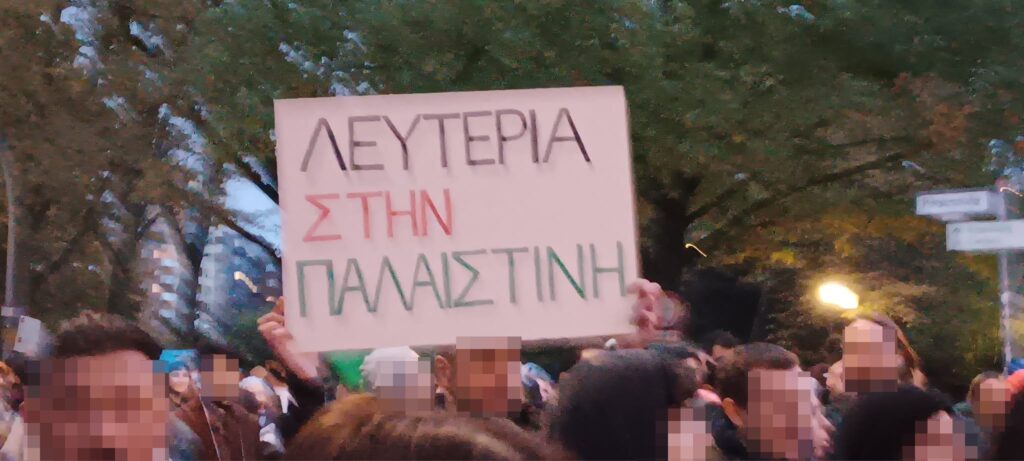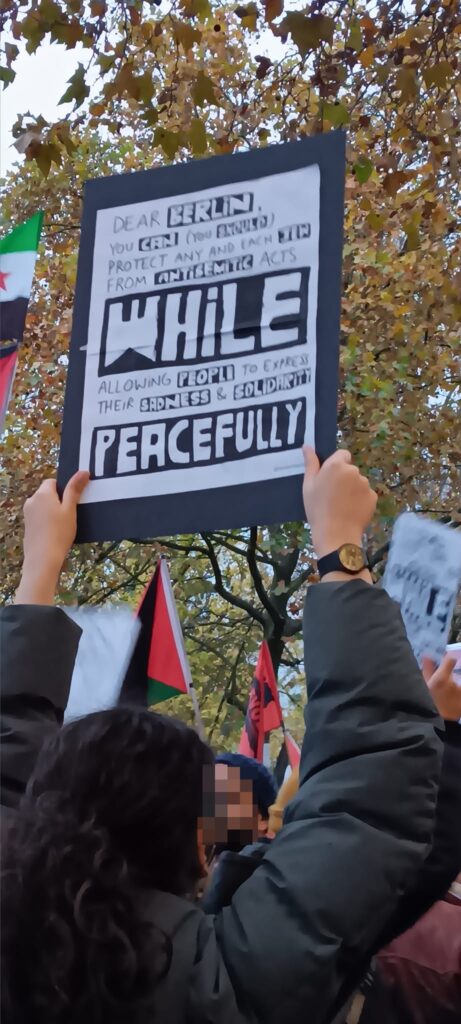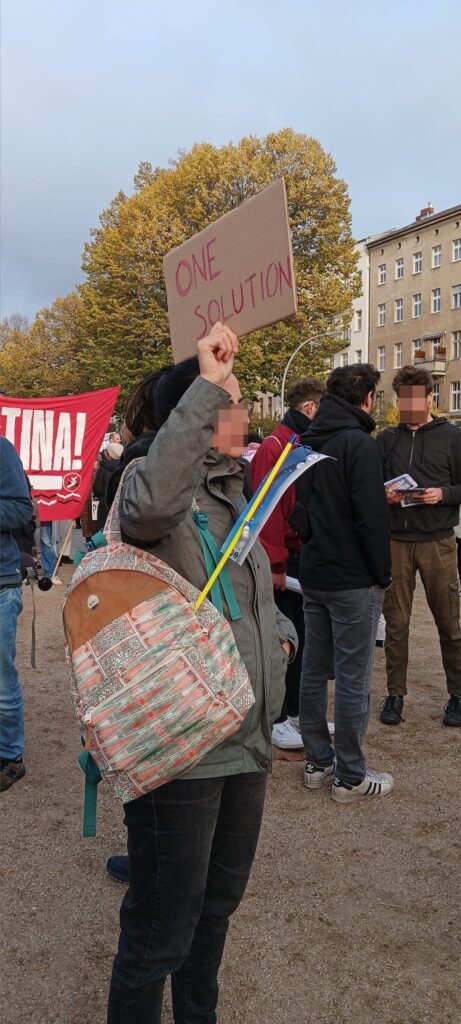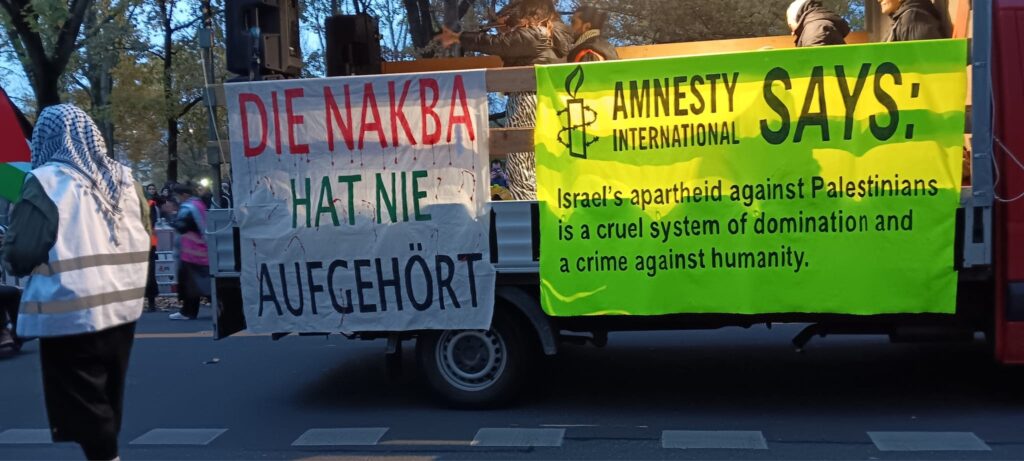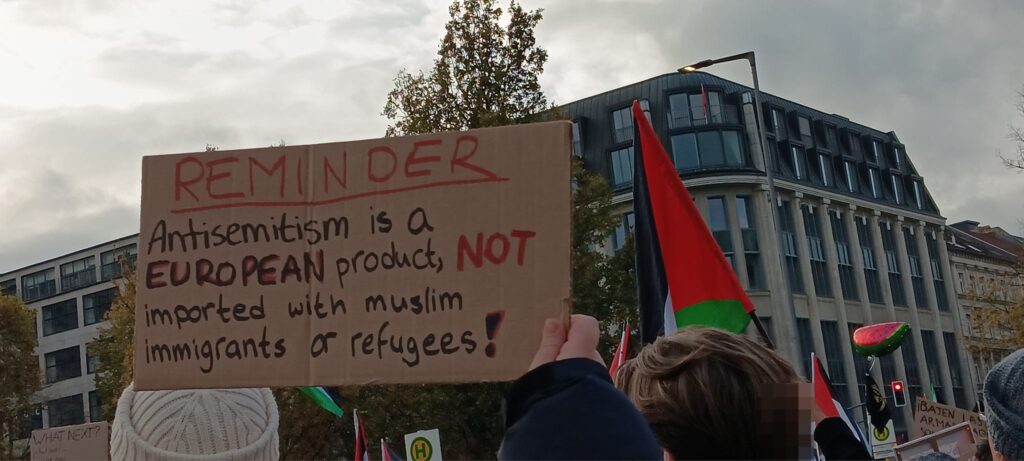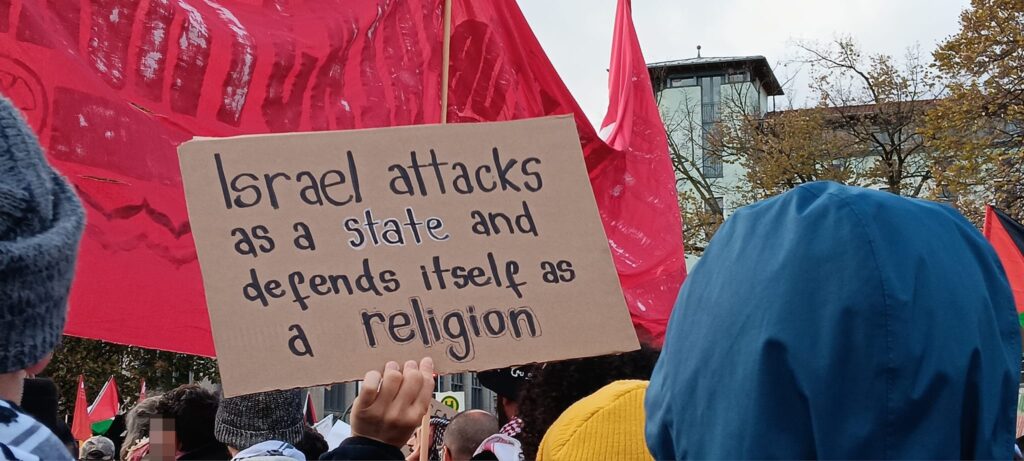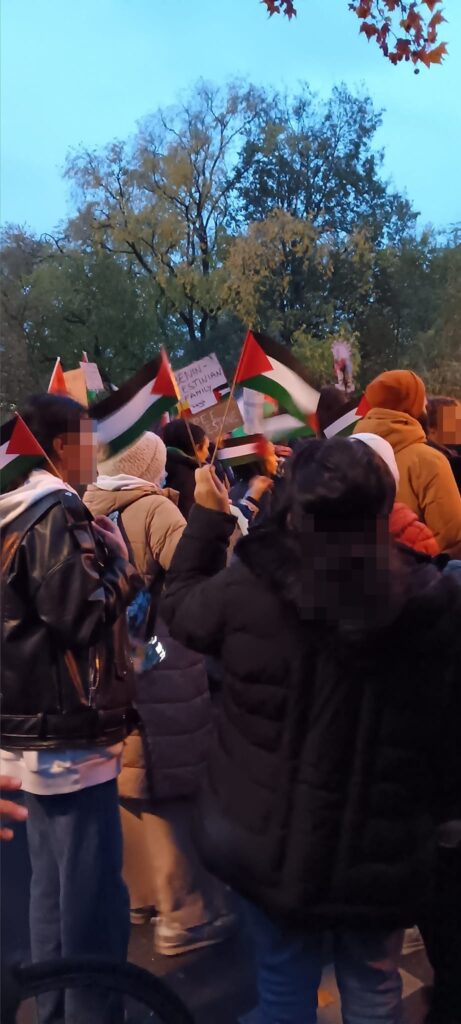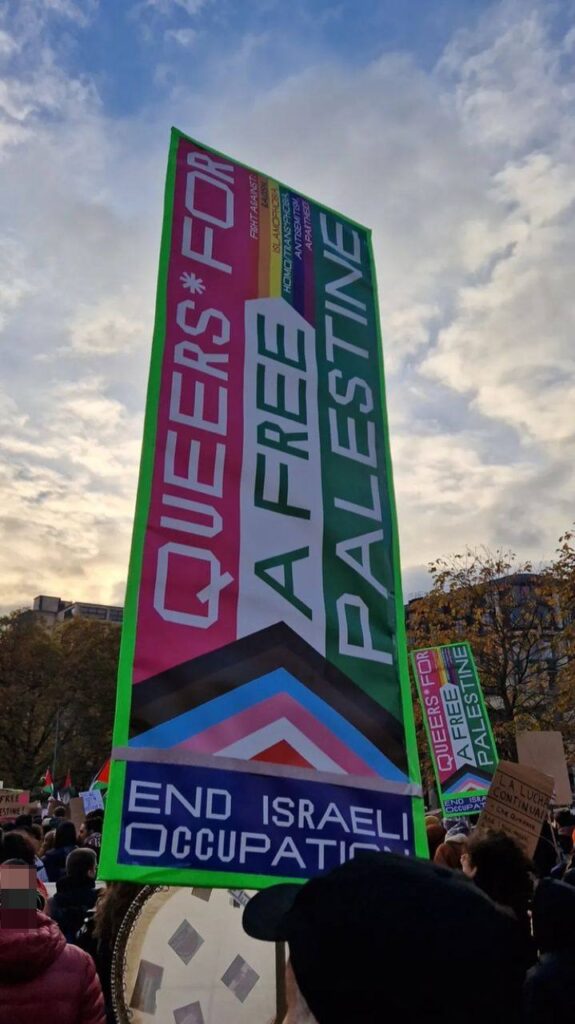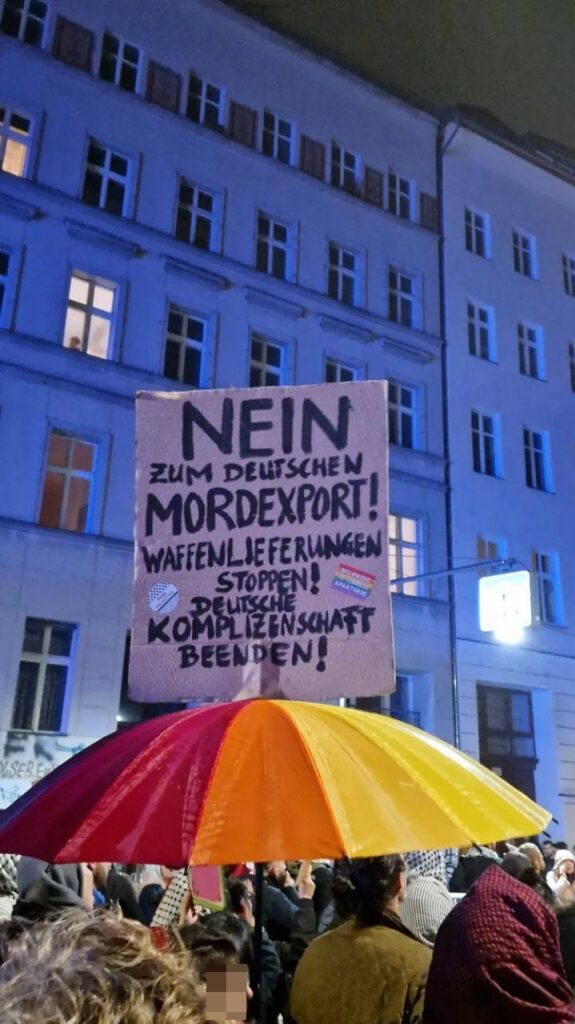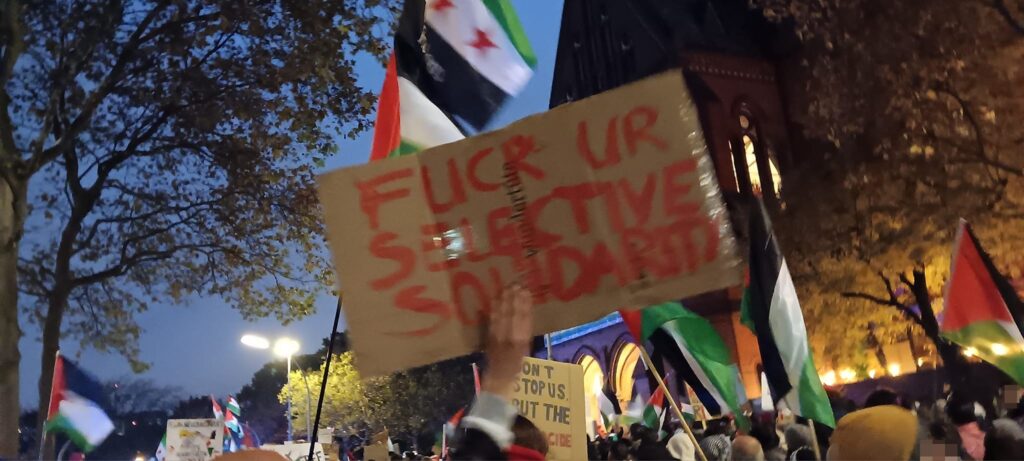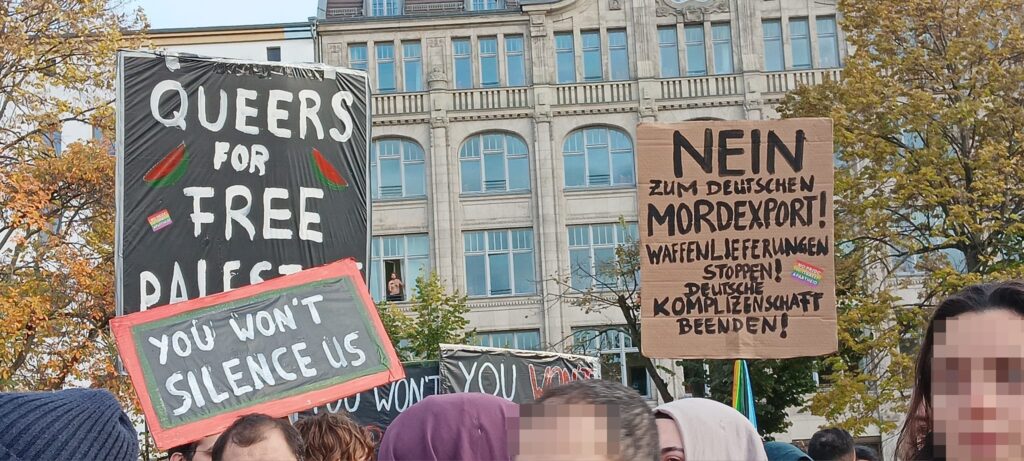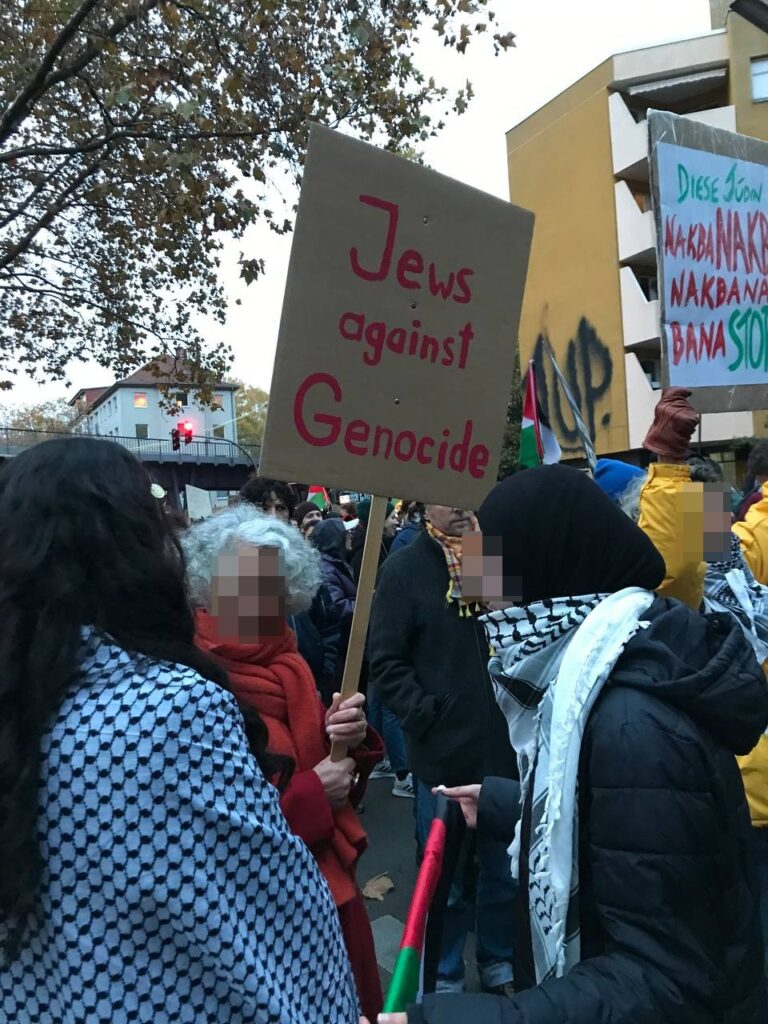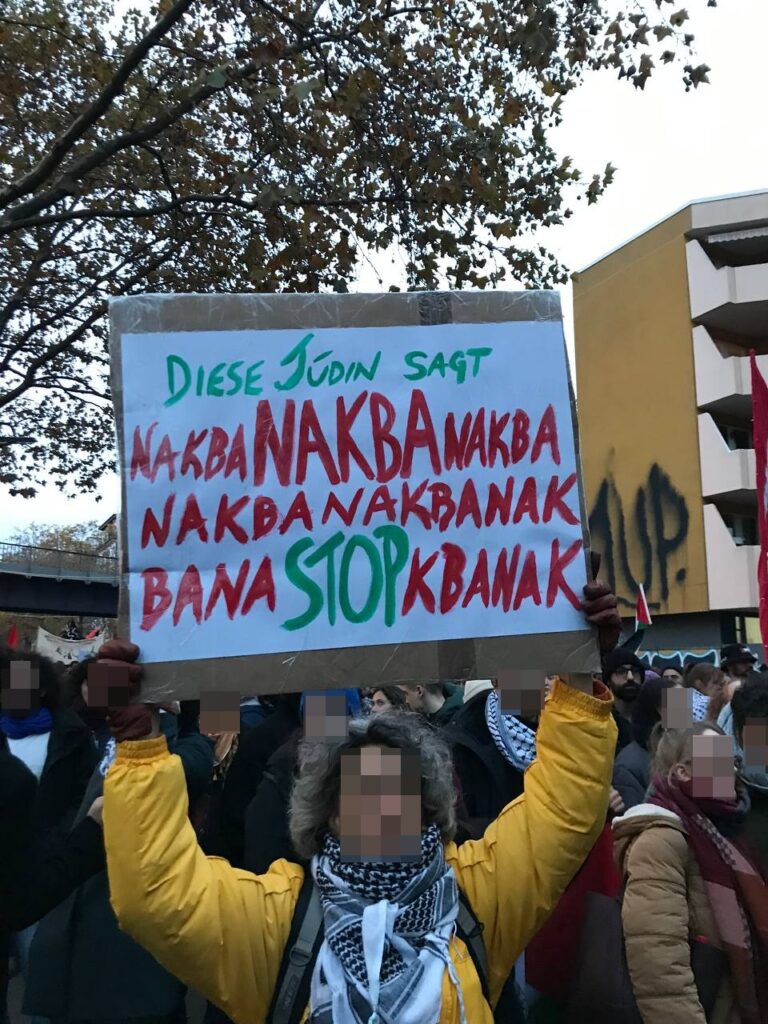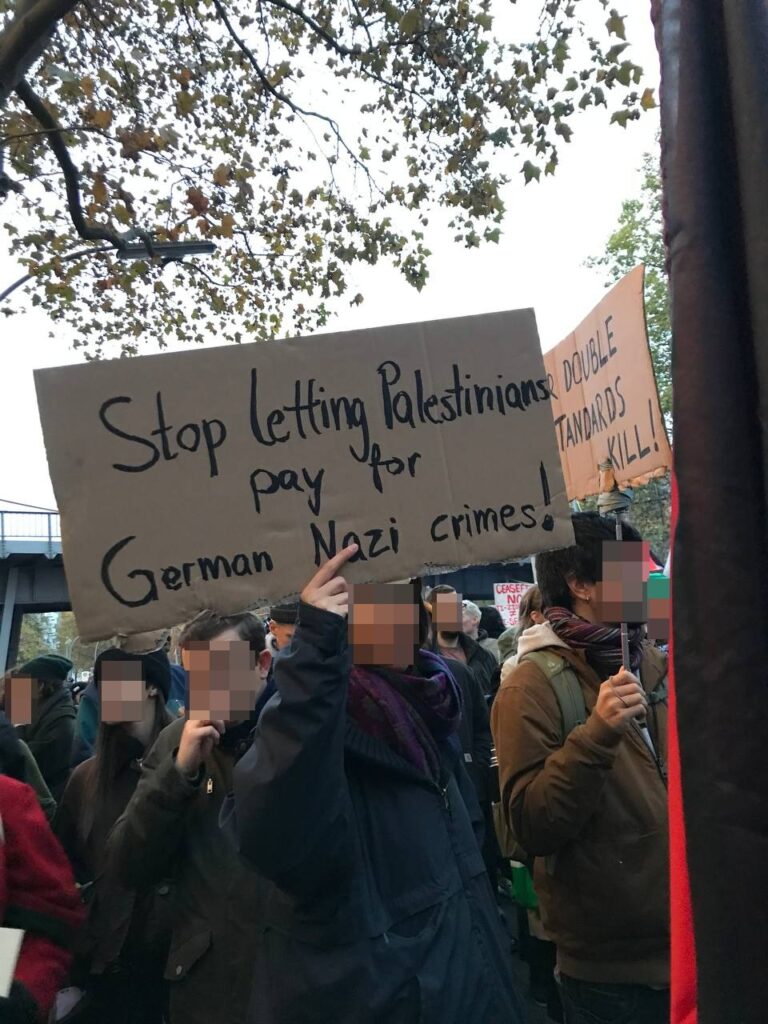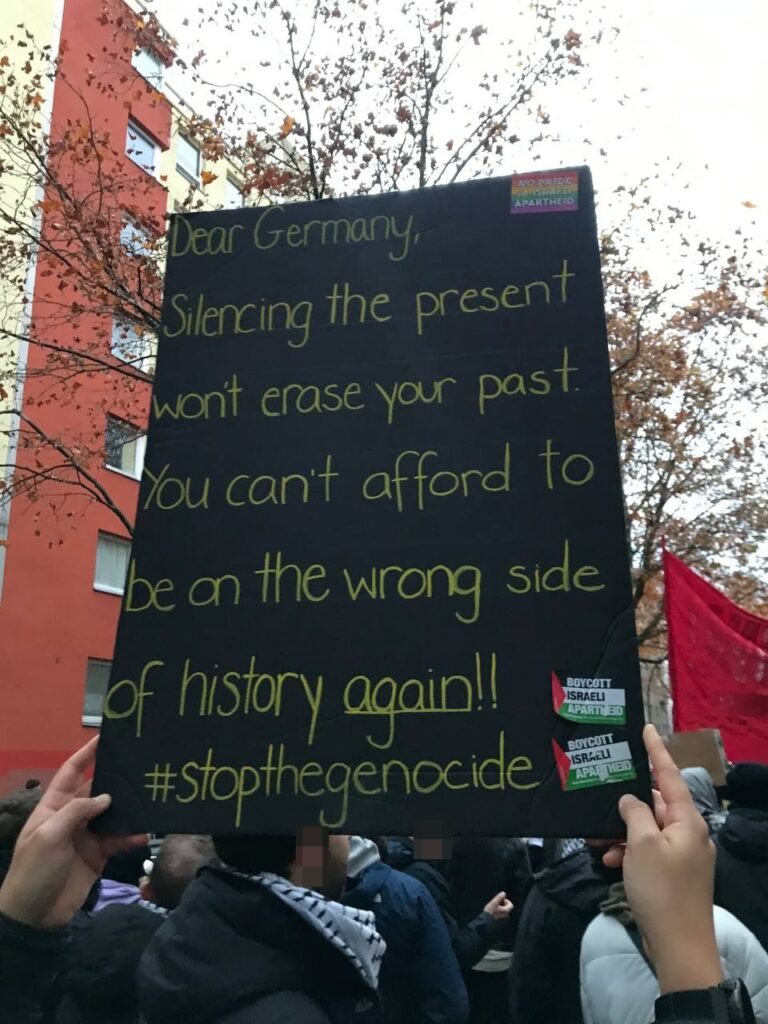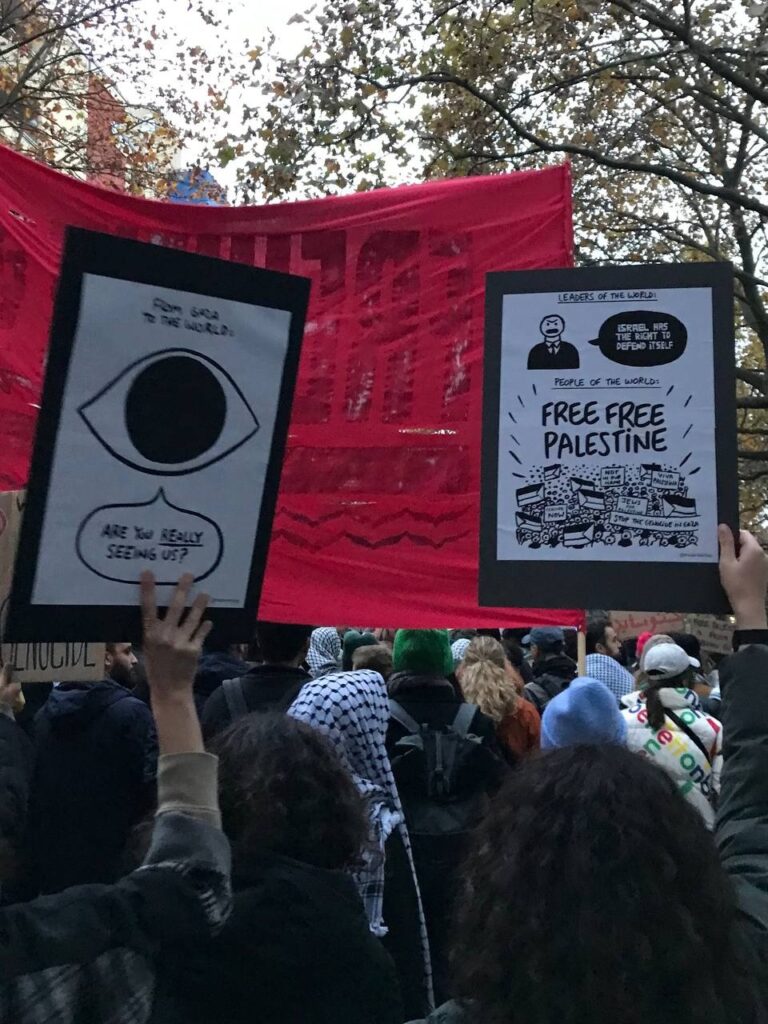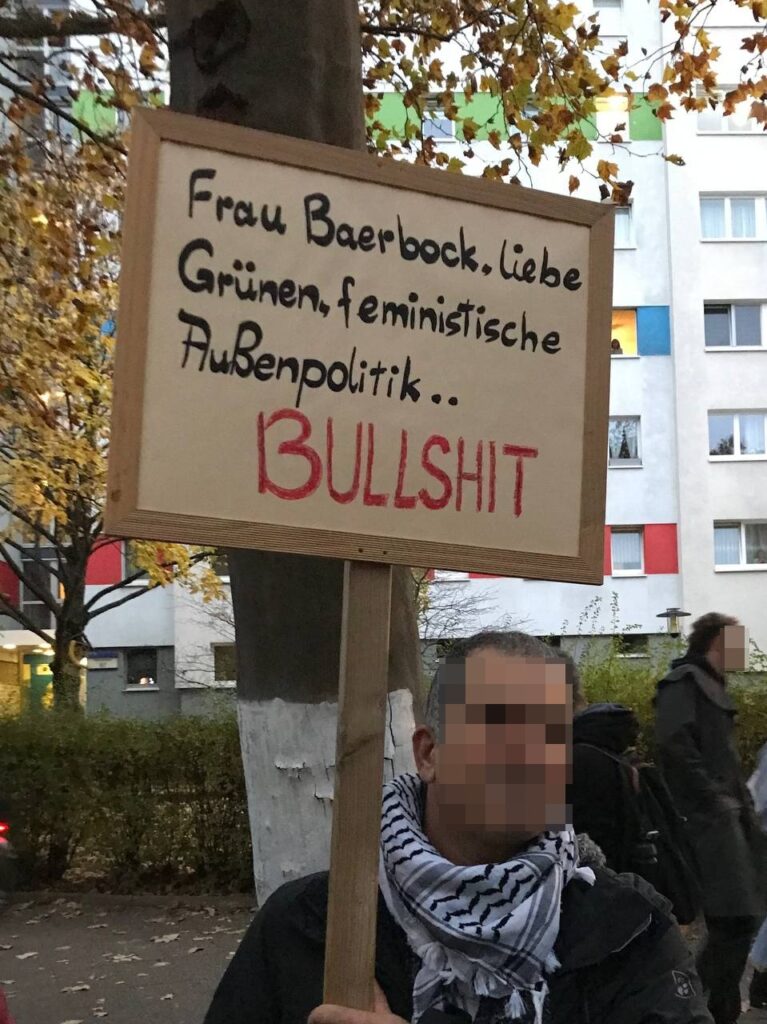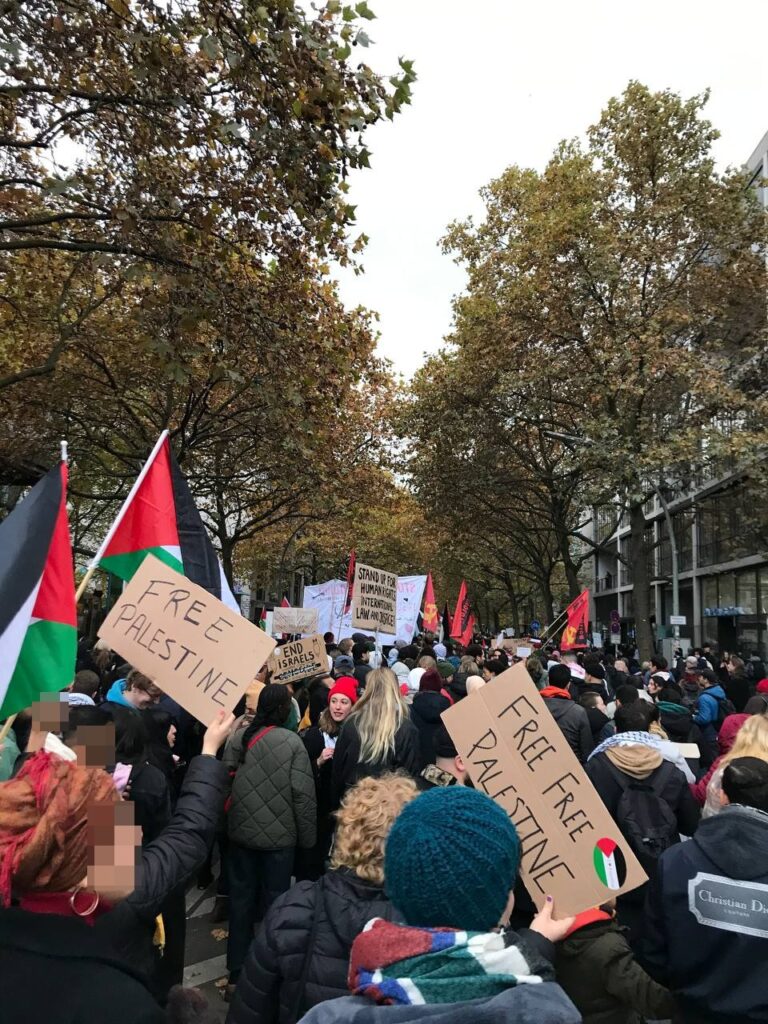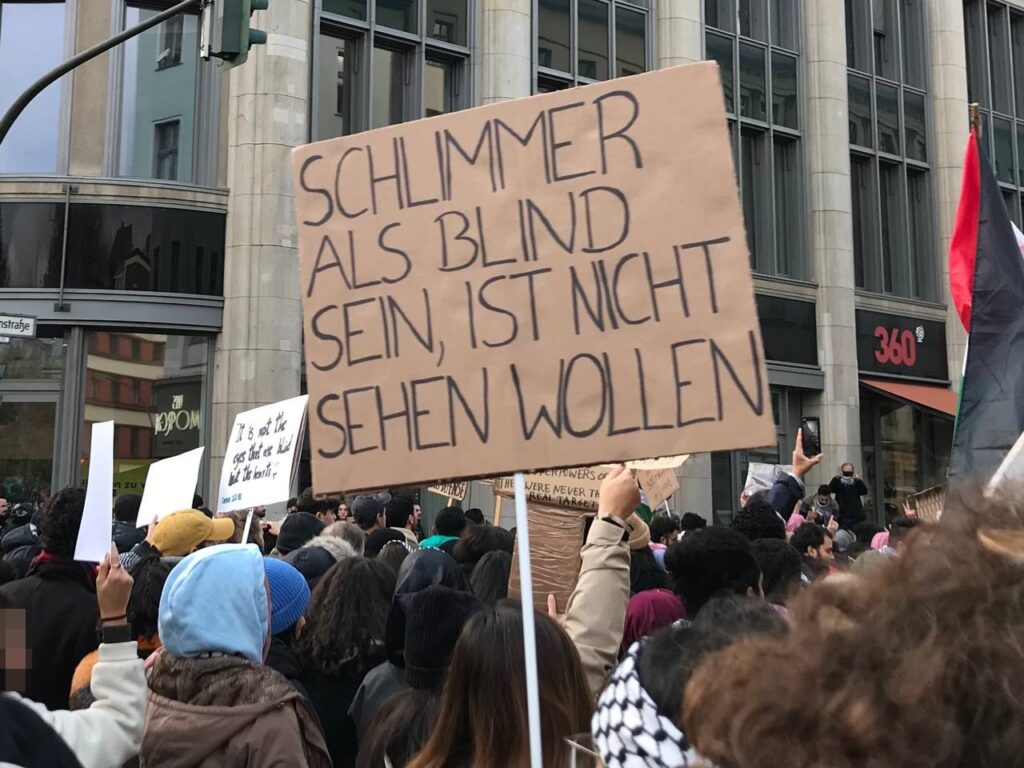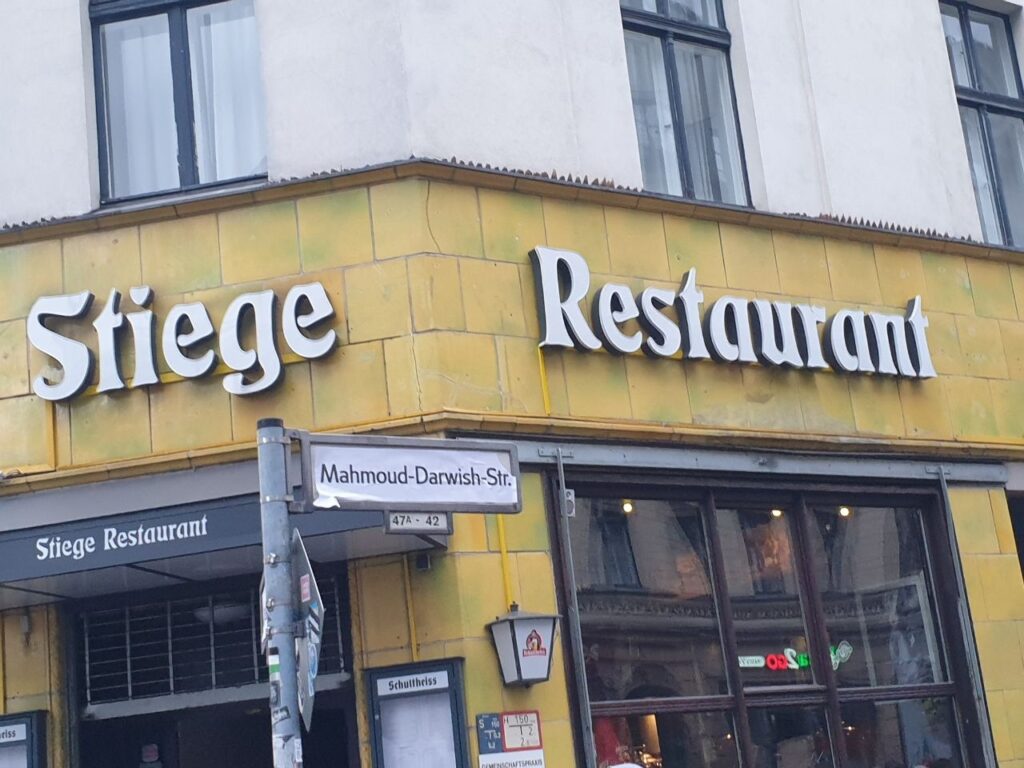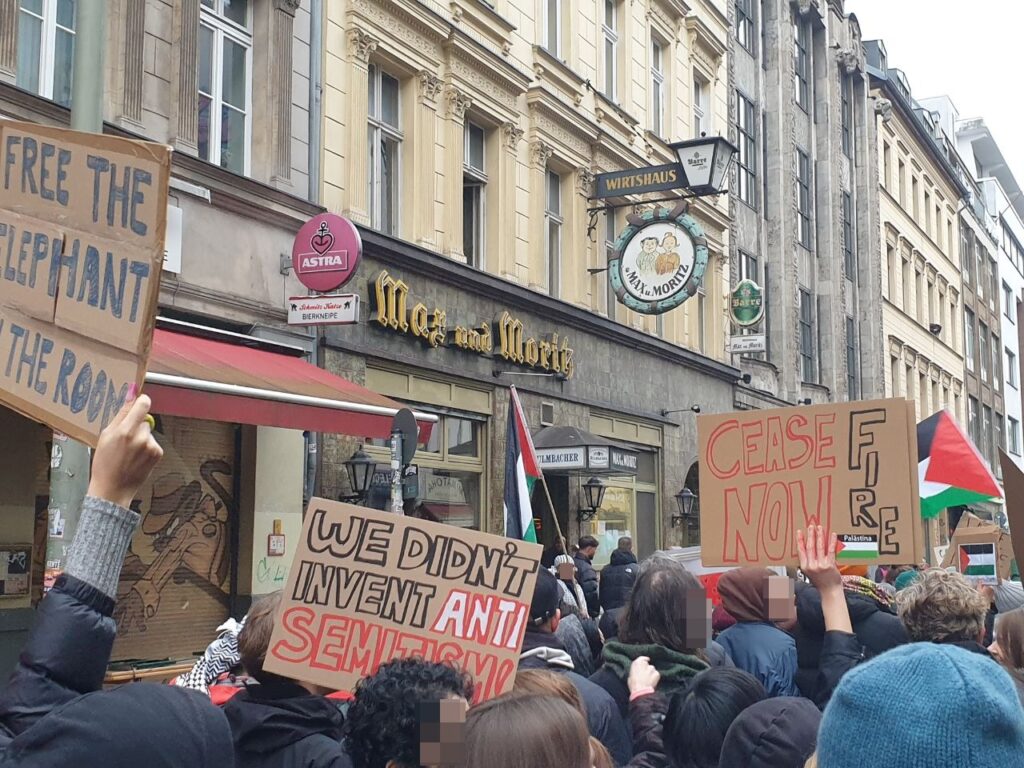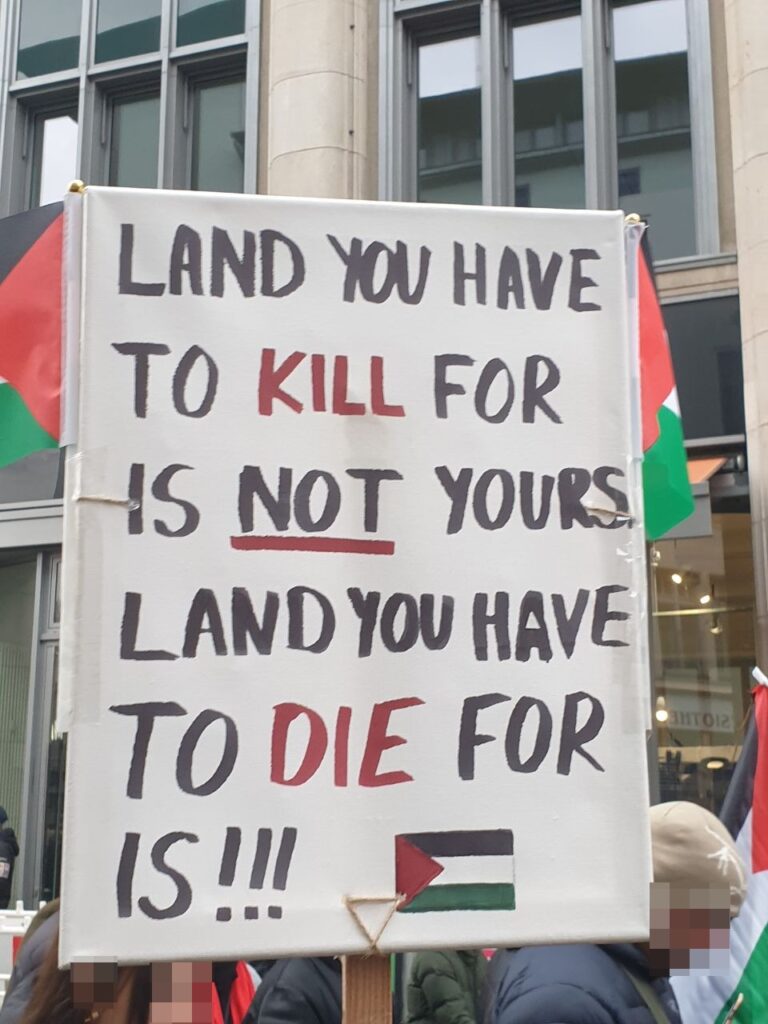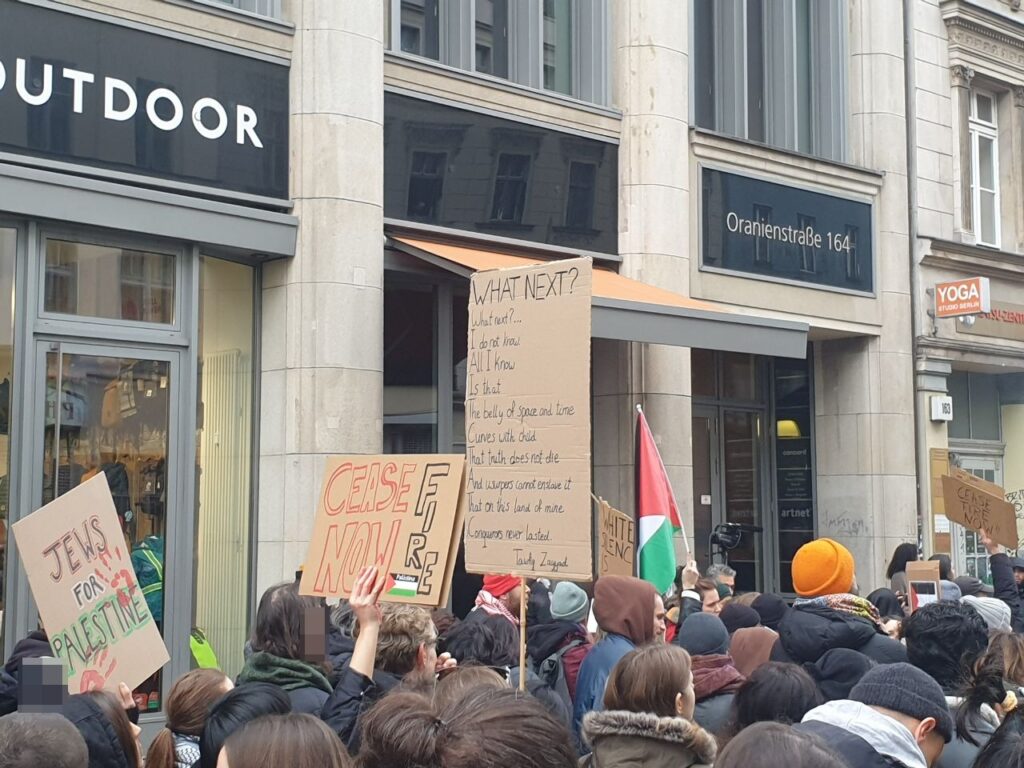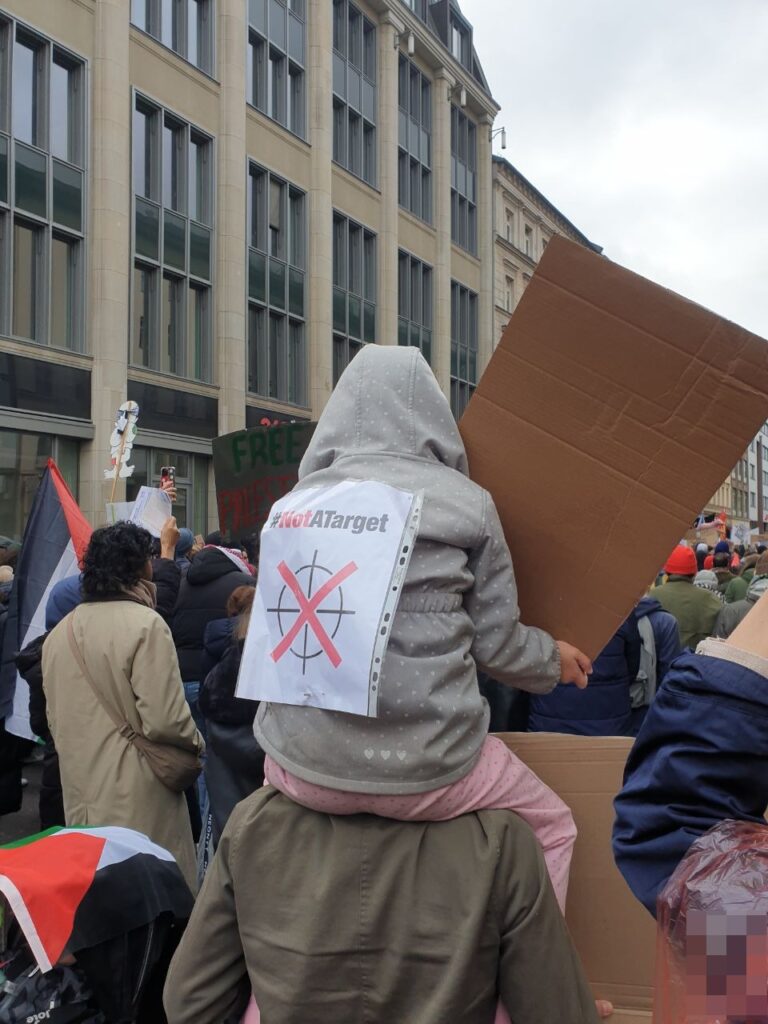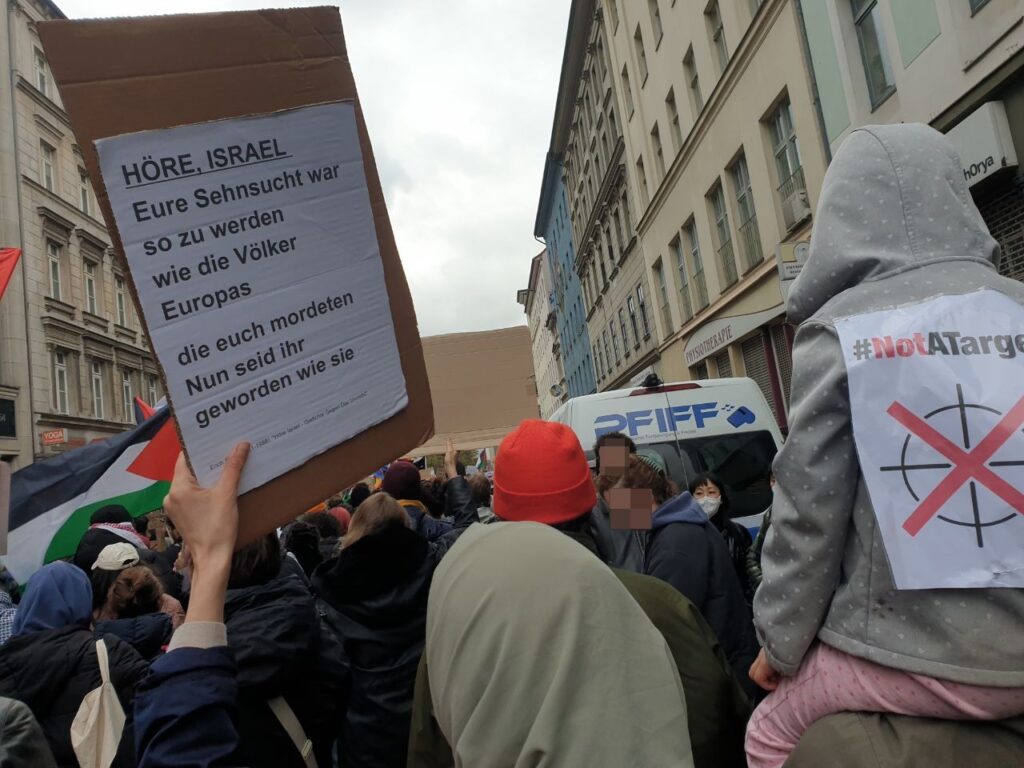Following last week’s interview with Udi Raz on 20 years Jüdische Stimme, the interview continues to talk about his personal engagement, including his recent sacking by the Jewish Museum
Hello again, Udi. You have just been sacked by the Jewish Museum. Why?
The official reason is that I used the term “apartheid”. The Jewish Museum say that this term is unacceptable. The head of the museum’s education department told me that that high school students who come to the museum cannot comprehend what apartheid means.
The thing is that I use so many terms that people don’t know. This is exactly the essence of working in an education institution such as a museum. Especially the Jewish Museum which offers information about which young people do not have the opportunity to inform themselves within this the school system in Germany.
You’d have thought that if people didn’t know what apartheid means, you should say more about it, not less
This is the thing. In fact, I always explain not only that, I expand. I always begin by asking the participants in my tour whether they can explain to the rest of us what apartheid means. I never had an experience when nobody knew what apartheid is. There is always somebody within the group who understands the concept, and can explain exactly where it comes from, the historical context, and even why it applies to the situation in the West Bank.
You could say that I’m actually going very easy with the definition when I apply it to the situation in Palestine. According to Amnesty International apartheid applies to the entire area that we call Palestine, or Israel. But in my tours, I talk specifically about the West Bank.
People who didn’t grow up in Germany, have difficulty understanding the German education system, and particularly how it talks about in the Middle East. What’s your experience from the people on the tours that you give? What do they know? And what don’t they know?
What they want to know is exactly what I tell them. They want to hear a story that connects the story of Germany, Israel and what Judaism means. And I always tell them the story of why I came to Berlin. I was born and raised in a city called Haifa. At this point, I raise the question: “Where is Haifa?” What for example, would you say?
I’d say it’s on the Mediterranean coast
It’s on the Mediterranean. Some people refer to this area as Palestine while others refer to it as Israel. I grew up in a city where many Palestinians and Jews lived together. Since a young age, it was very clear to me that the place where I’m living has more than one name and that is absolutely fine.
But there is a certain region within this area that is called the West Bank with cities such as Ramallah and Jenin. There most of the population understand themselves as Palestinians and are so understood by the régime that controls them. A minority of the people in the area are Jews who live in so-called settlements. Israeli laws apply to people in the settlements, while Palestinian people living the same area are subject to the military law of the State of Israel.
Different laws apply to Jews than to non-Jewish people. And this is precisely one of the characteristics that According to Amnesty International, classify this situation, as apartheid.
Amnesty applies the term apartheid to the whole area, not just the West Bank. Haifa is probably the most integrated city in the whole of Israel or 1948 Palestine? Is it right to use the term apartheid about Haifa as well?
That’s a good question, and I don’t know. I did not inform myself well enough about the condition of Palestinian population living in 48, which is definitely a deficit. But exactly for this reason, I don’t talk about what I don’t know. I talk in my tours only about what I know. And I can give you plenty of examples why the situation in the West Bank must be understood as apartheid. It’s not a question of interpretation. It’s a matter of international law.
And your sacking was specifically because you called the West Bank an apartheid area?
Exactly.
Do you know who was ultimately responsible for your sacking?
The final decision was made by the head of the Education Department, Diana Dressel. She told me very clearly in the last conversation that we had, that I received plenty of praise. She even forwarded me some of this positive feedback before they fired me.
In the meeting, when they decided to fire me, she mentioned that she has a dilemma. Because I received a lot of praise. She finds that the pedagogic work that I’m doing is extraordinary. But since I used the term apartheid, she cannot allow me to receive new bookings.
I am a freelancer working for the museum, not a direct employee, so I can only work when they book me.
Do you think this is a decision taken by the museum without outside influence?
I know there are other reasons why I was fired. I will not reveal them now. But I am working with a lawyer and we are considering what what to do with the internal information that I have.
How would you categorize the Jewish museum? It puts on good exhibitions, and in the book shop you can buy CDs by the anti-Zionist singer Daniel Kahn. And yet this is not the first incident like this. The director Peter Schäfer was forced to resign after the museum retweeted an open letter by Jewish scholars against the criminalisation of BDS, and Yossi Bartal, your colleague in the Jüdische Stimme also resigned
For a few years, the museum enjoyed a sense of ambivalence. But with each new scandal that unfolds, we understand better what sort of institution the Jewish Museum is, what ideology it serves, and which policy leads their decisions.
In this case, apartheid is acknowledged, by Amnesty International, Israeli human rights organisations, and even by Zionist generals, to describe the situation in the West Bank. Therefore we can say clearly that there is no doubt that the decision to fire somebody for using the term apartheid is really a manifestation of gaslighting.
It’s not the question of whether “Is this the reality or not?” It is whether you are allowed to perceive this reality as such – yourself or not.
And you see it as part of the rising repression in Germany in terms of demonstration bans and room bans?
Absolutely. This is the thing. The museum wishes to sell itself as a pluralistic place, especially in the sense of hosting a diversity of Jewish voices. But it fails to do this again and again and again. The tragic thing is that most of the people who make the decisions – of who works here? What exhibitions will be there? What installations will be there? – are not Jews themselves.
Non Jews are constructing for Jewish people what Judaism means, what Jews are allowed to say, what Jews are not allowed to say, what Jews are within, what Jews are without. The Jewish Museum is only one case. This is true also in cases of the so called ‘Commissioners for Jewish Life in Germany‘ and the ‘Fight against Antisemitism’. E.g. Felix Klein, Samuel Salzborn, Michael Blume, Uwe Becker, Ludwig Spaenle, and the list goes on.
How have people reacted to your sacking?
99% of the messages I receive are supportive. I think that the population living in Germany nowadays understand the hypocrisy of their leaders, who stand in solidarity with Israel. That is a racist state, that is now forcing millions of Palestinians to become refugees, once again, killing thousands of Palestinians, even killing Israelis, who are hostages by Hamas.
The Israeli government is willing to kill those hostages, rather than to find a humanitarian solution. This really breaks my heart. It is something I cannot accept. It’s not even open for discussion to me. This is a strategy that is purely racist. And it comes at the stage where this government is willing to sacrifice its own citizens, in order to maintain a sense of enmity. One that is arguably inherent to understanding how Jews and Muslims or Jews and Palestinians should live their life.
Is there any sort of campaign to get you reinstated. Do you want to be reinstated?
Yes. I understand the work in the Jewish Museum as essentially important. It is exactly this kind of work that in the long run really makes an impact. Because those people who listen to my stories, also become the generation who will be allowed to vote in Germany. And if they truly care about Jews who live in Germany, they should at least understand what is being done in the name of Judaism by the State of Israel, and how Germany currently not only neutralizes this racist ideology, but also supports it.
If someone reads this interview and wants to do something against your sacking what should they do?
There is a few different attempts I’m working on at the moment. One of them is a petition. Another one is a press release about how I understand the situation. And the third one is eventually to collect of donations to support me throughout this time, because I was very much dependent on this work. It was the main job I had in the last few months. This also emphasizes the financial violence Germany exercises against Jews living here. I will share more information on my social media. Please follow me there, this is already a meaningful support. Let us support each other.
How can people put pressure on the Jewish Museum? Financial support is essential. But that doesn’t put pressure by itself?
Write to the Jewish Museum. Insist to receive the answers that you deserve
Would a boycott would be a good idea?
The museum is free anyway. Everyone can can go there any time. I do think that the installations one can find there have value by themselves, and could even have more value with the correct mediation. I left a group of amazing guides behind me, who are still working there. And I don’t see a reason to assume that the guides, who are also my friends, will fail to do the important work that they already do. To these guides I send my best wishes because what they are doing is fundamentally important work.
It’s important to emphasize that the problem is with those who make the policy of what people are allowed to think, and to know. The problem is not with the individuals who carry out the education work despite such restrictions.
How’s the museum financed?
The museum is public foundation, financed by the German state. And the decision making is controlled by the German government and state officials.
Is there any way that people can put pressure on the board?
Insist on the service you deserve. Write to any individual at any institutional level who you recognize within the structure of the museum. Because this case raises many questions for those who understand themselves as taking part in a democratic system.
What is happening here is precisely the opposite of promoting democracy. It is silencing and censoring, actually preventing knowledge and the truth from being presented as such.
Can we go on to an initiative that you’ve been working on recently – discussing Palestine in Berlin Universities? You organized a meeting last week. How did that go?
Two weeks in a row we had meetings with dozens of students from different universities in Berlin and Potsdam. We are receiving so much feedback from students, but also from workers and professors, about people who are afraid to speak up, as soon as you move from the perception that Jewish lives matters to the idea that Palestinian lives matter too.
It comes to this. Once you insist that everybody who lives in the same region, should be perceived as an equal human being, then you are targeted by sanctions, boycott, divestment, you name it. People have already lost jobs, – not only me. This atmosphere of fear currently characterizes universities in Germany.
This has nothing to do with the notion of academic freedom. In fact, it’s dangerous, not only for people in university, but for the entire society. Because thinking critically is the essence of how a democratic state can thrive.
Who is involved at the moment?
The people who are involved in organizing are students from different levels - Bachelor students, Masters, PhDs. We also have the support of many professors, and people who work within the structure of the university, not just teachers, but also researchers and administrative staff. I cannot mention the names of these brave people, because we they deserve protection.
We have students from different universities. This includes, the FU, HU, TU, UDK, Hertie School, Alice Salomon Hochschule, Potsdam University, and Filmuni Babelsberg.
Presumably it’s not just about talking. What are you planning to do?
We have formulated a petition with very clear demands. We want to emphasize that the current situation in academia in Germany cannot proceed the way it does at the moment. It is rooted in a racist understanding of how we should perceive the world. We reject this. Instead, we want to reclaim the academic freedom which should belong to us according to basic German law.
What’s the mix of backgrounds of people involved?
It’s really mixed – Germans, Palestinians, Israelis, and students from other countries. It’s people who understand that Palestinian lives matter. This is something which is very human and basic to understand.
Last week, I met a group of about 20 Spanish socialists, a number of whom were in the German education system. They were completely frustrated. They said, we want to help the Palestinians, but don’t know what we can do here. How could people like this support your campaign?
First of all, write us, connect with us at studentscollectiveberlin@gmail.com or on Instagram. We are there not only to work outwards, but also to support each other. This is one of the very important goals of this network that we established. We understand the severe restriction of academic freedom at the moment, and the severe consequences of this. And we are there to support you. So join us you’re, not alone.
At the moment, we have a good overview about different manifestations of repression, against individuals who speak up for basic human rights. Contact us, and we will provide you with the information that you need. If you yourself experience repression, also contact us, because we are building an archive which is unfortunately growing bigger every day.
Could you give a couple of concrete examples of what and how academic freedom has been restricted?
One example is from the Berlin Graduate School Muslim Cultures and Societies to which I am now affiliated. Shortly after the events on the 7th October, we approached the head of our institution offering to organize a public panel discussion. We proposed, with other individuals, that I report from my own research work over the last four years.
Together with a group of students, we wanted to address the repression of Palestinian voices today in Germany. The Berliner police arrested people wearing the kuffiyah at that time. We especially wanted to address this at a graduate school which claims to address realities of Muslim cultures and societies. As a researcher myself, I saw myself responsible for bringing in voices from my fieldwork into this academic sphere. We suggested panellists from ‘Palestine Speaks‘ and the ‘Palästina Kampagne‘, two organisations which are doing amazing work at making living experiences of Palestinians visible.
We were shocked by the refusal from the head of our institution to allow such a panel discussion, arguing that this topic is too political at the moment. At the same time, the university to which this graduate school is affiliated published a statement, showing solidarity only with the Israeli victims of the attack on the 7th October. The thousands of Palestinians who were killed in the name of the Jewish State were completely ignored by the university. This is a reality that we cannot accept.
The most visible repression in the education system at the moment is in schools. You talked about the kuffeyah ban, which was actually a ban on all “Palestinian symbols”. This was mainly implemented in schools. There’s the case of a teacher hitting a child. You’re mainly based in the university. Are you able to link up with people in the school sector as well?
We wish to extend our network as widely as possible. The message must be to anyone who is now confronting this racist repression that you are not alone. Wherever you are – in university higher education or lower education – Organize. Ask around and see that you are not alone.
But be careful. Beware of possible risks. We understand how much power racist people have nowadays. In today’s Germany.
You’ve had 2 meetings so far. Are you planning further meetings?
We are going to meet regularly. The petition is only one thing that we’re planning at the moment. We also support different initiatives that are specific to different universities. We are a collective of collectives. We do what we can to support each other. There are also people who work independently. Whenever they need anything from us. We are there for them.
Are there any specific initiatives planned?
Yes. We are working demonstrations within the campus, organizing panel discussion, and broadening our network. You can see all the relevant updates on our Instagram page.
How can people can help you?
Spread the message, spread the word. Help us to get this petition to anyone who needs to know about it. If you sign anonymously, we understand that for some people this is all thats possible at the moment. But this is also a huge support. You can also mention, as you sign, why you chose to sign this anonymously. You see, unlike what Germany wishes you to think, your voice is valuable and it matters.



